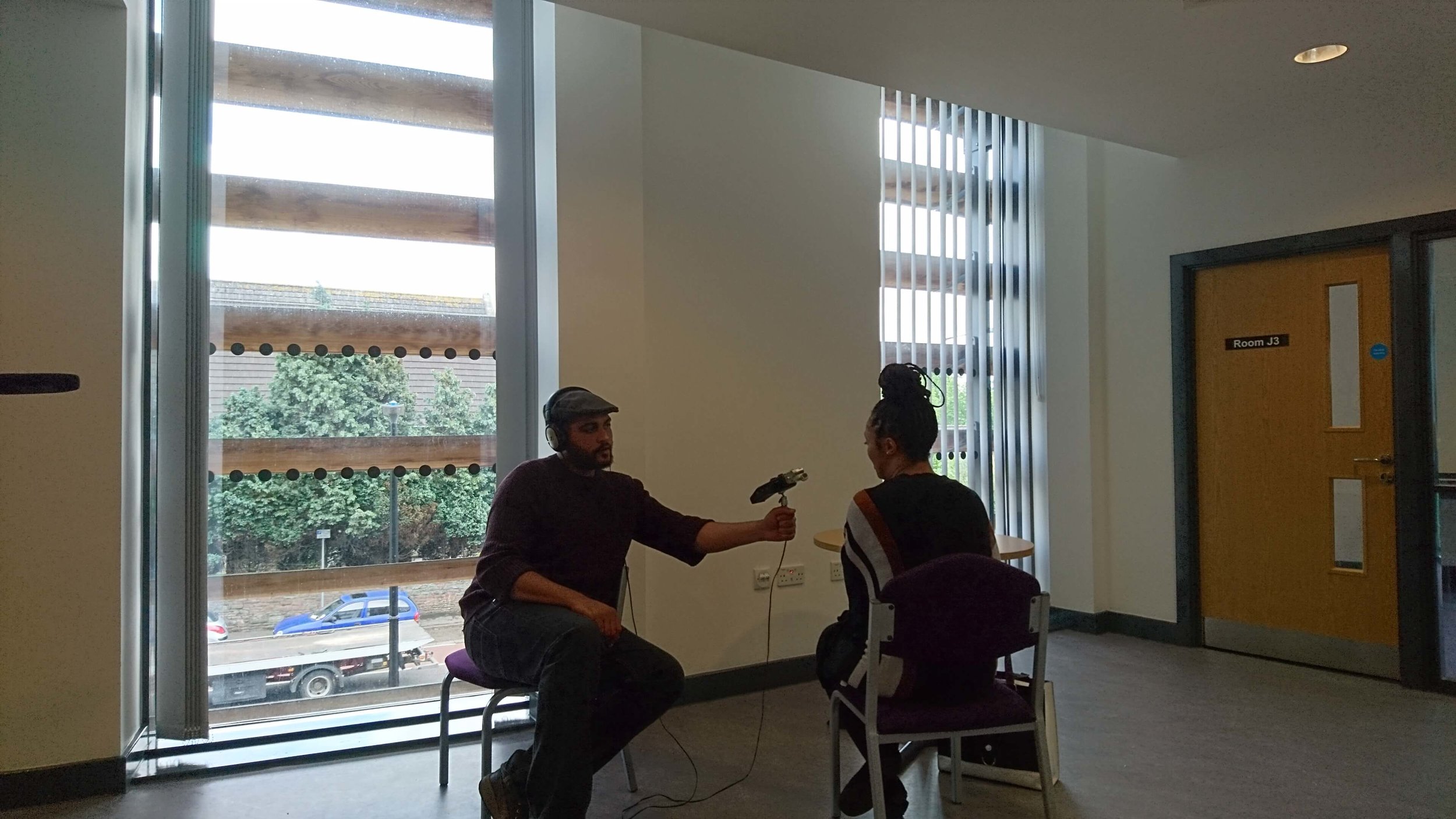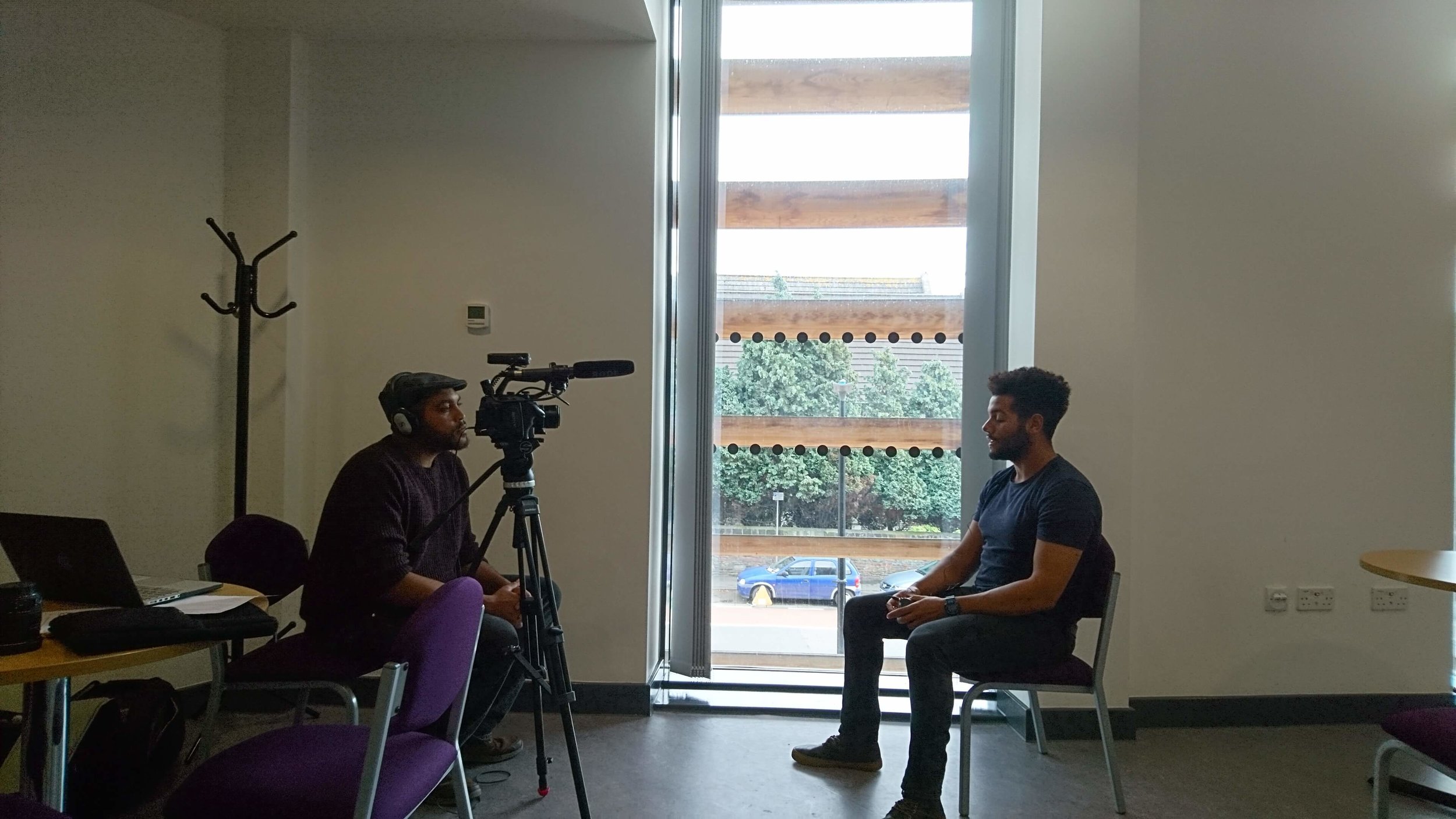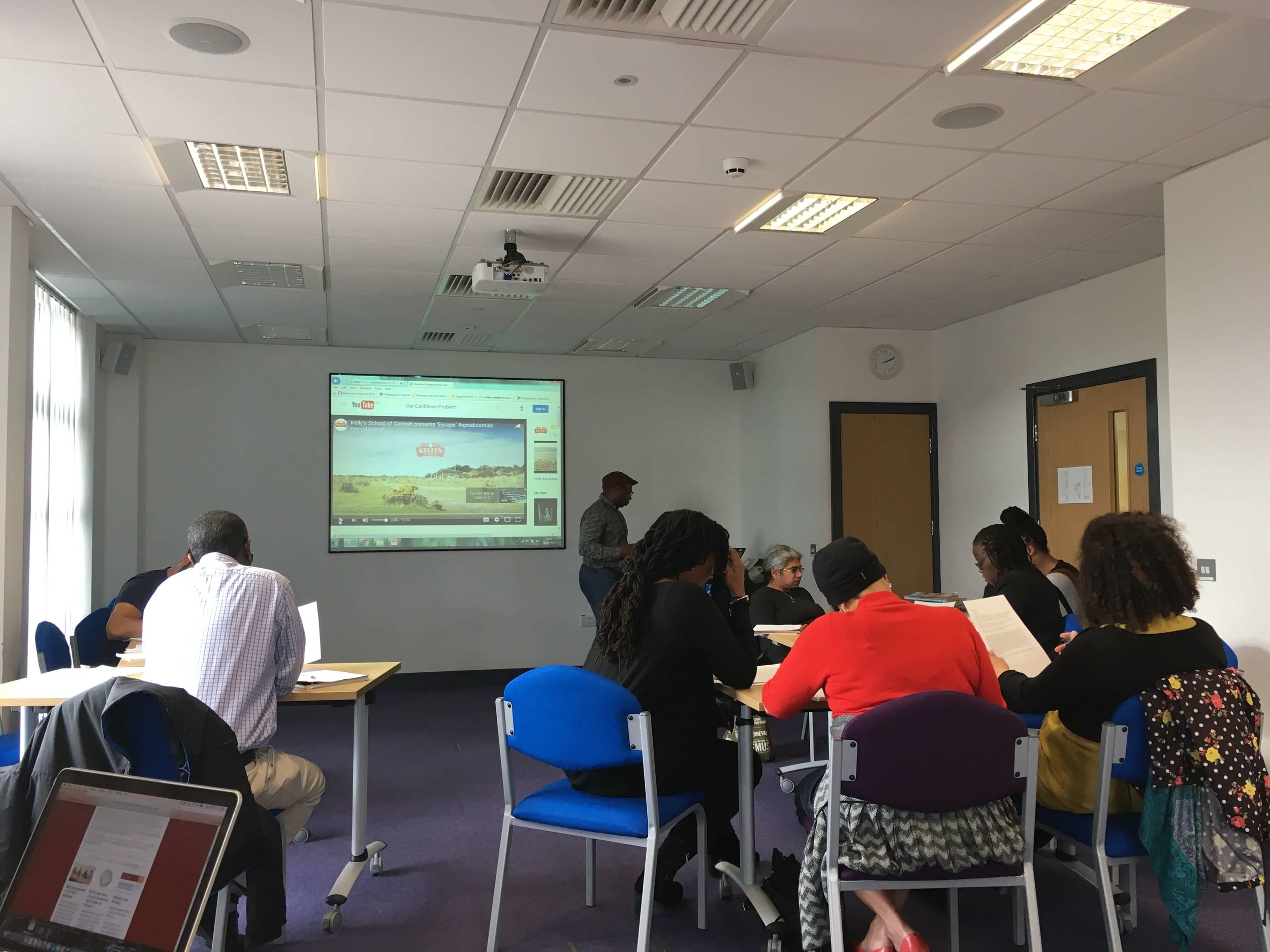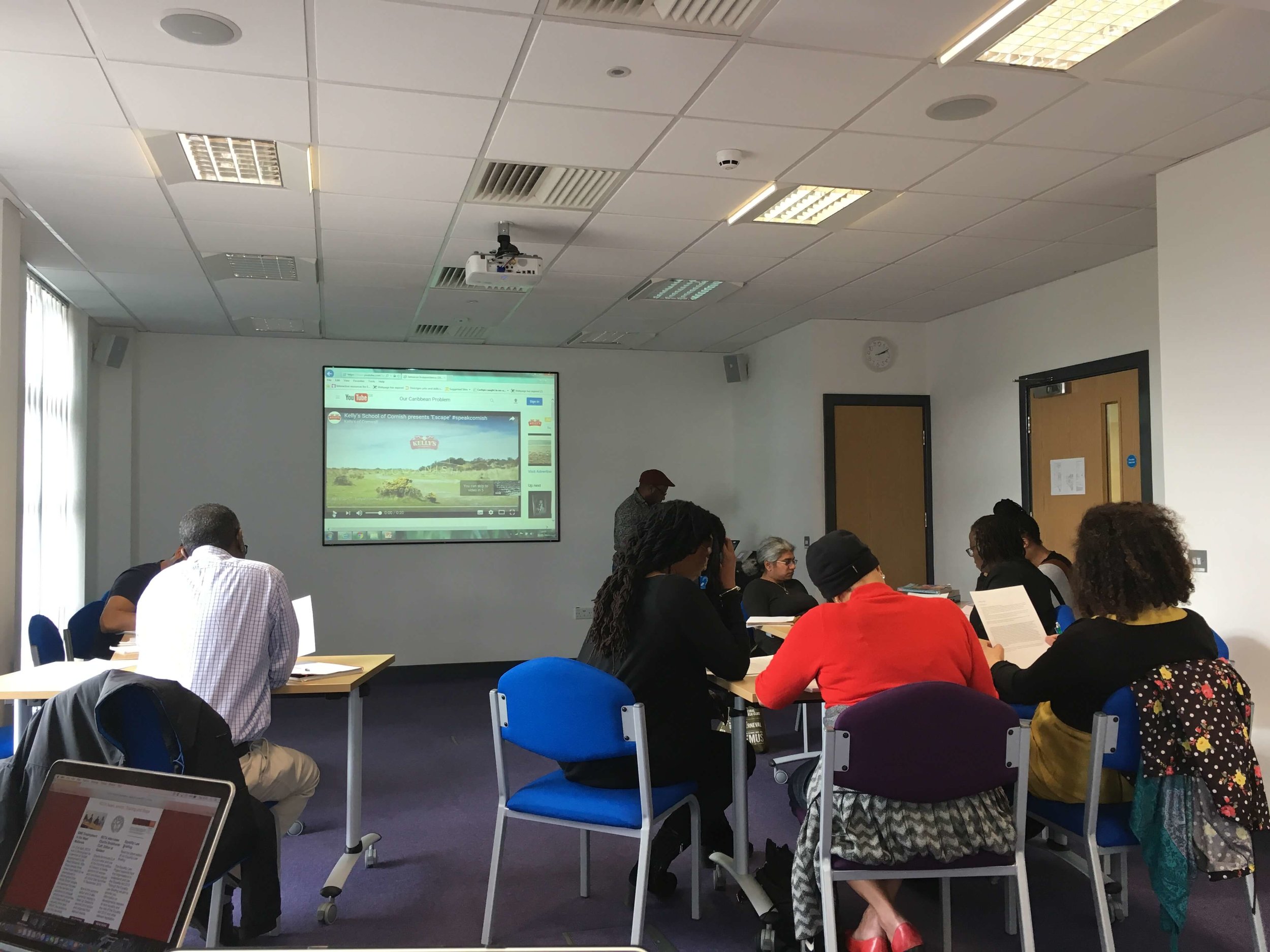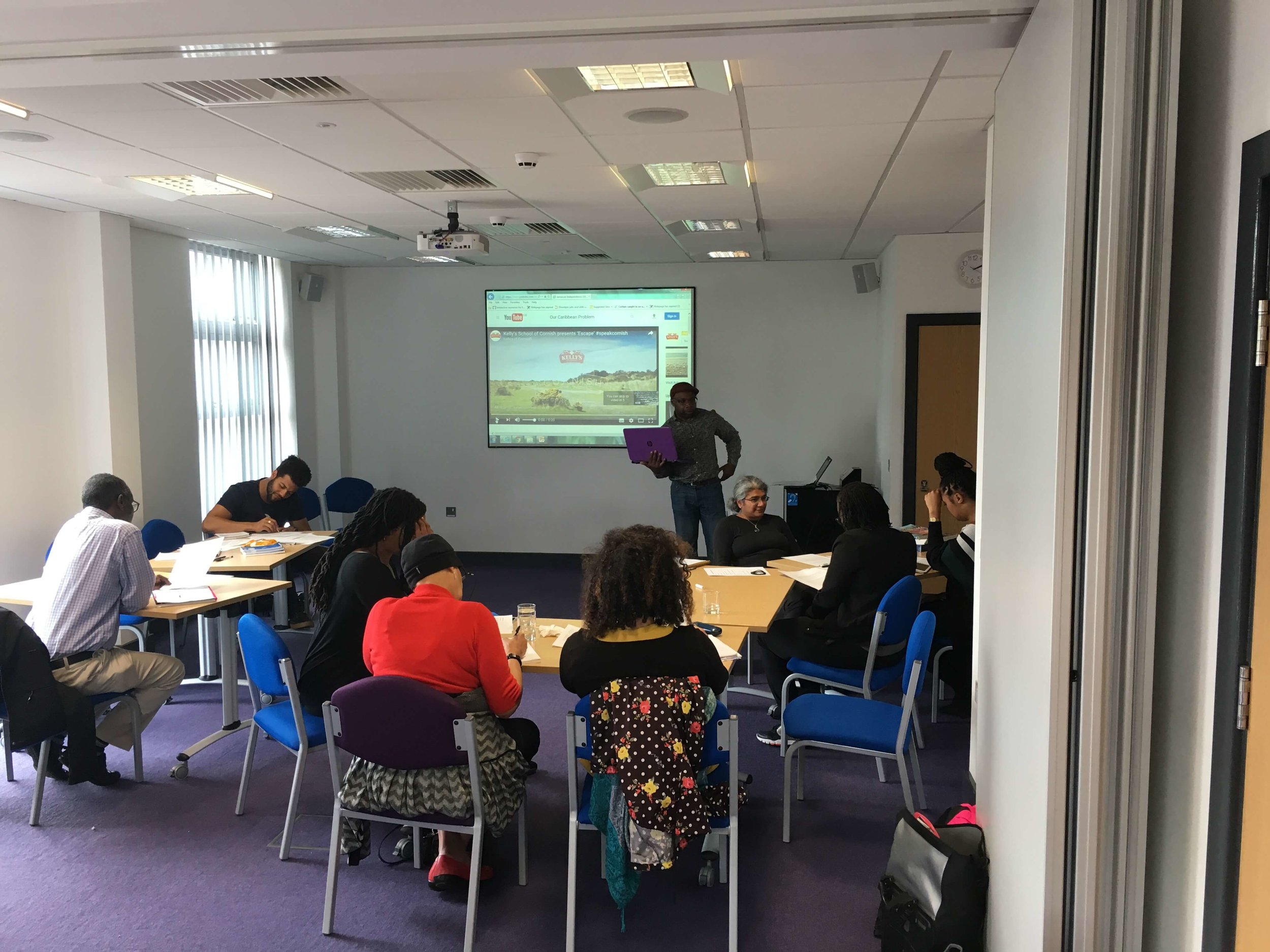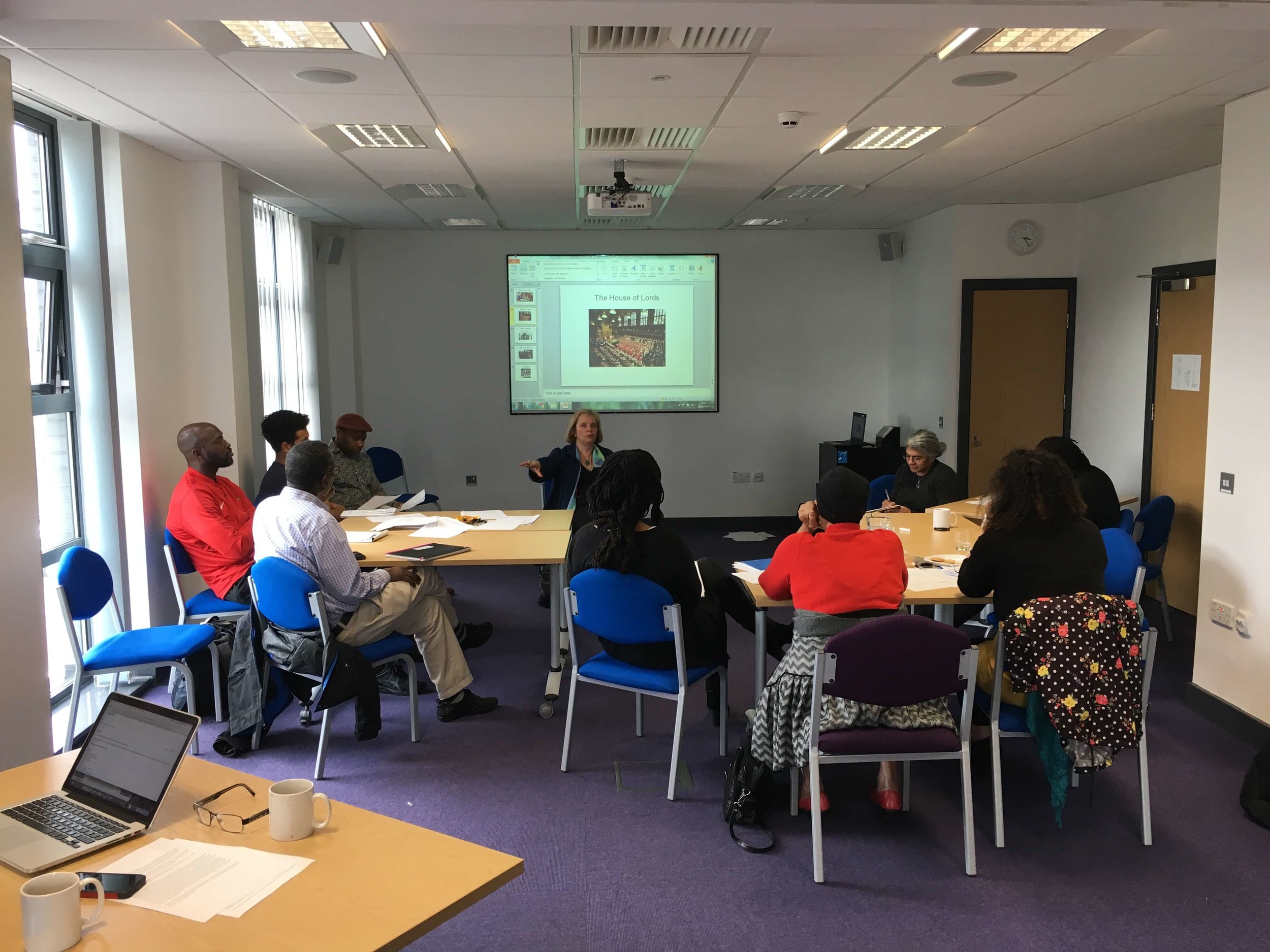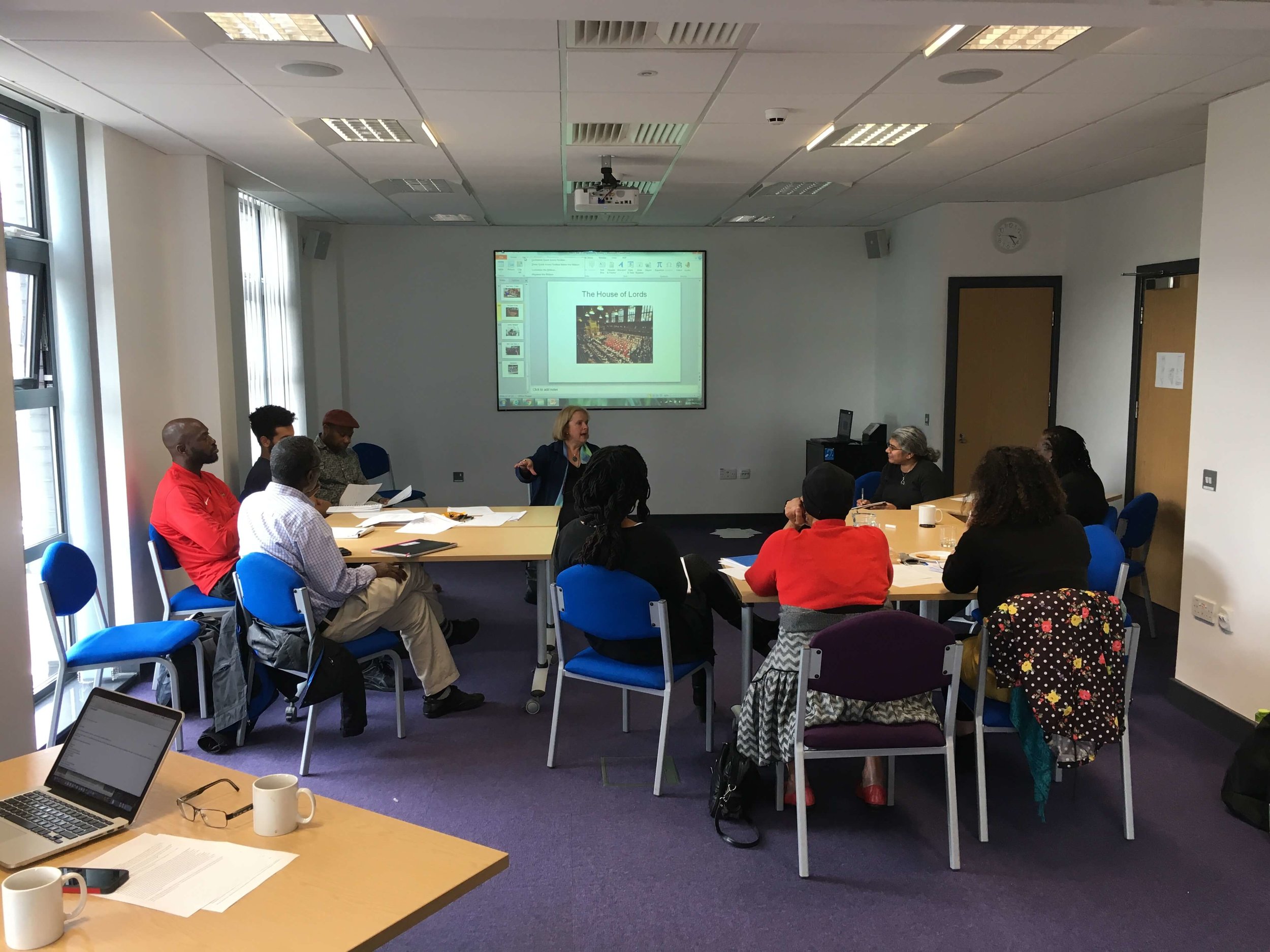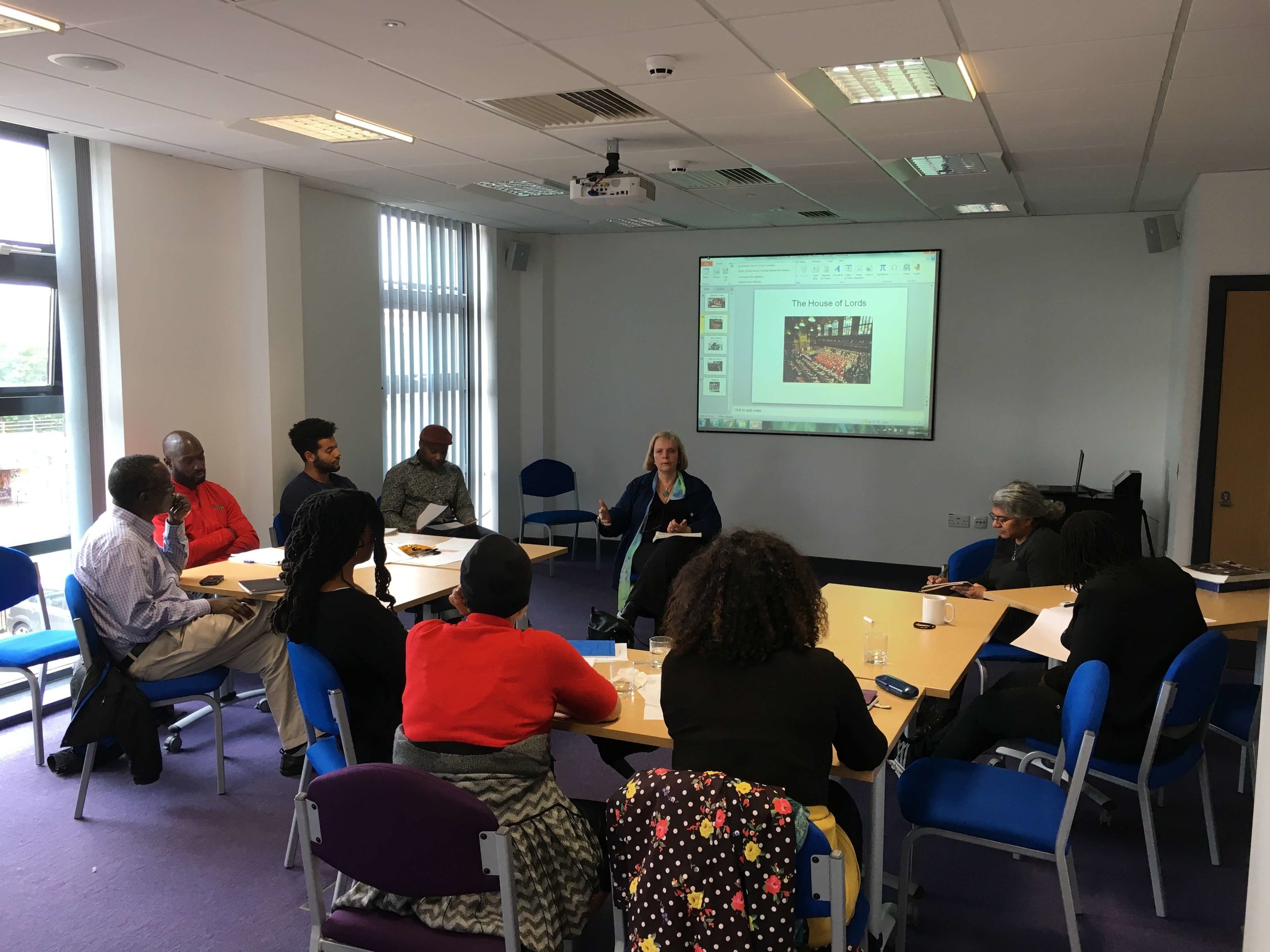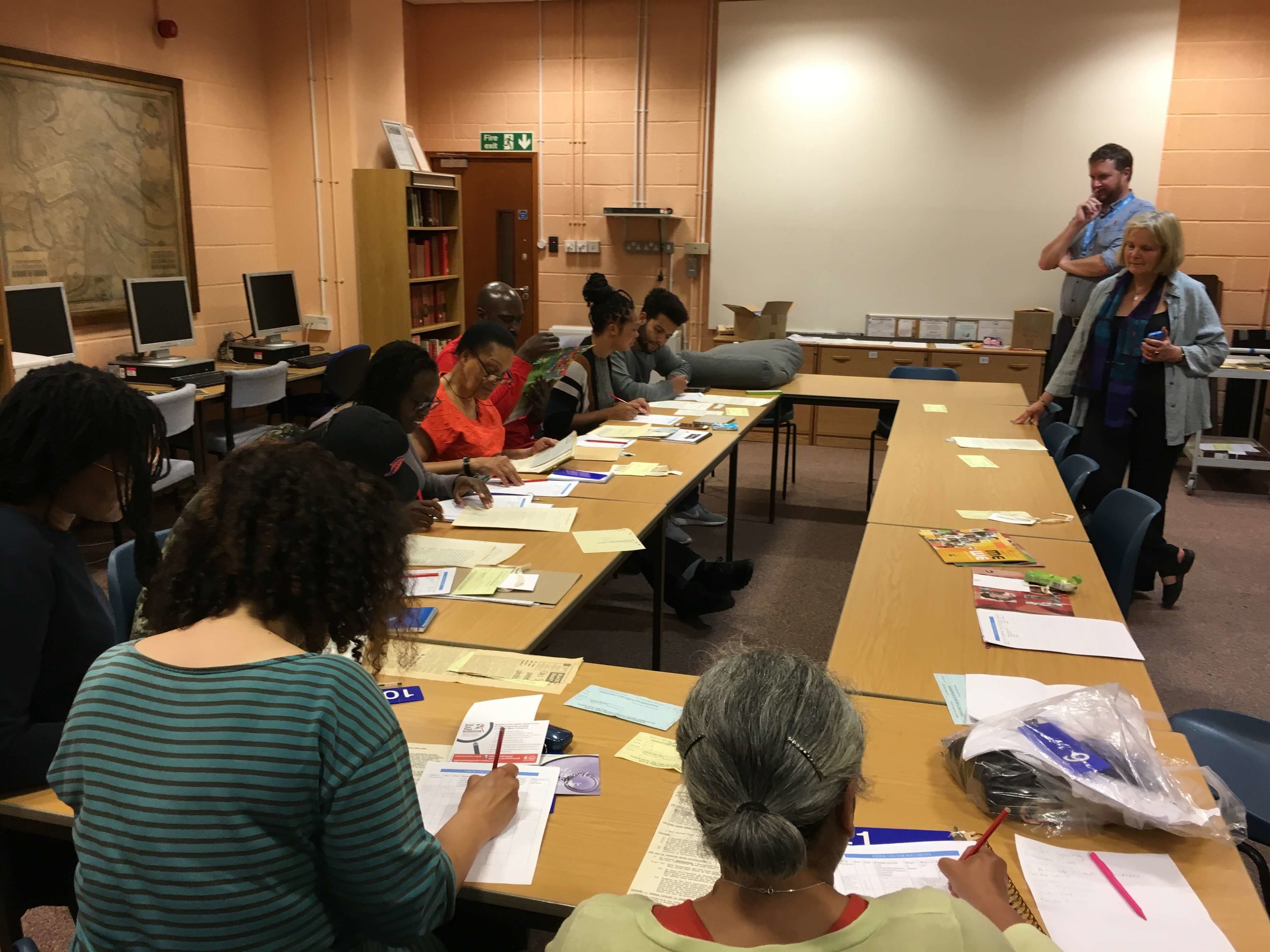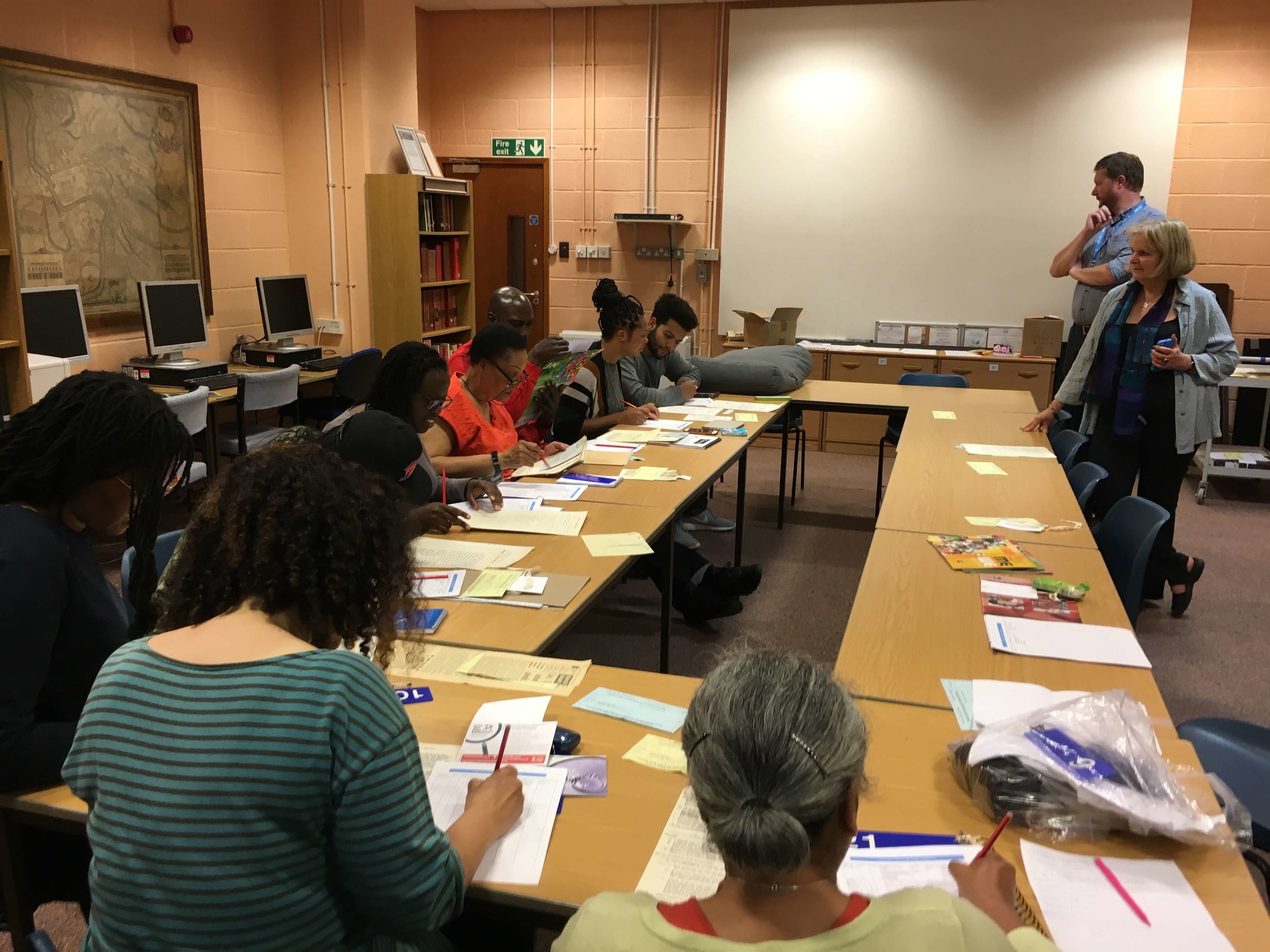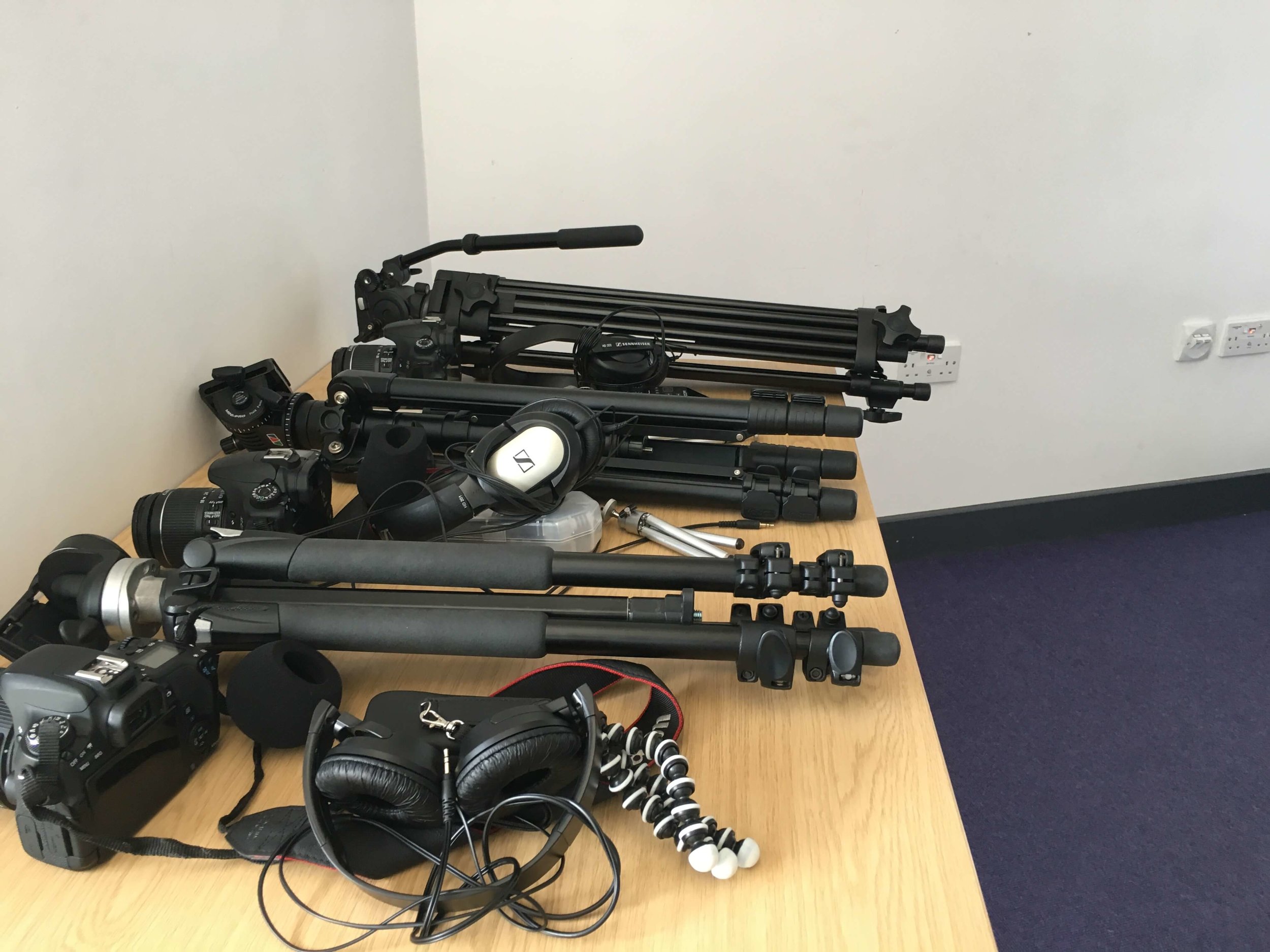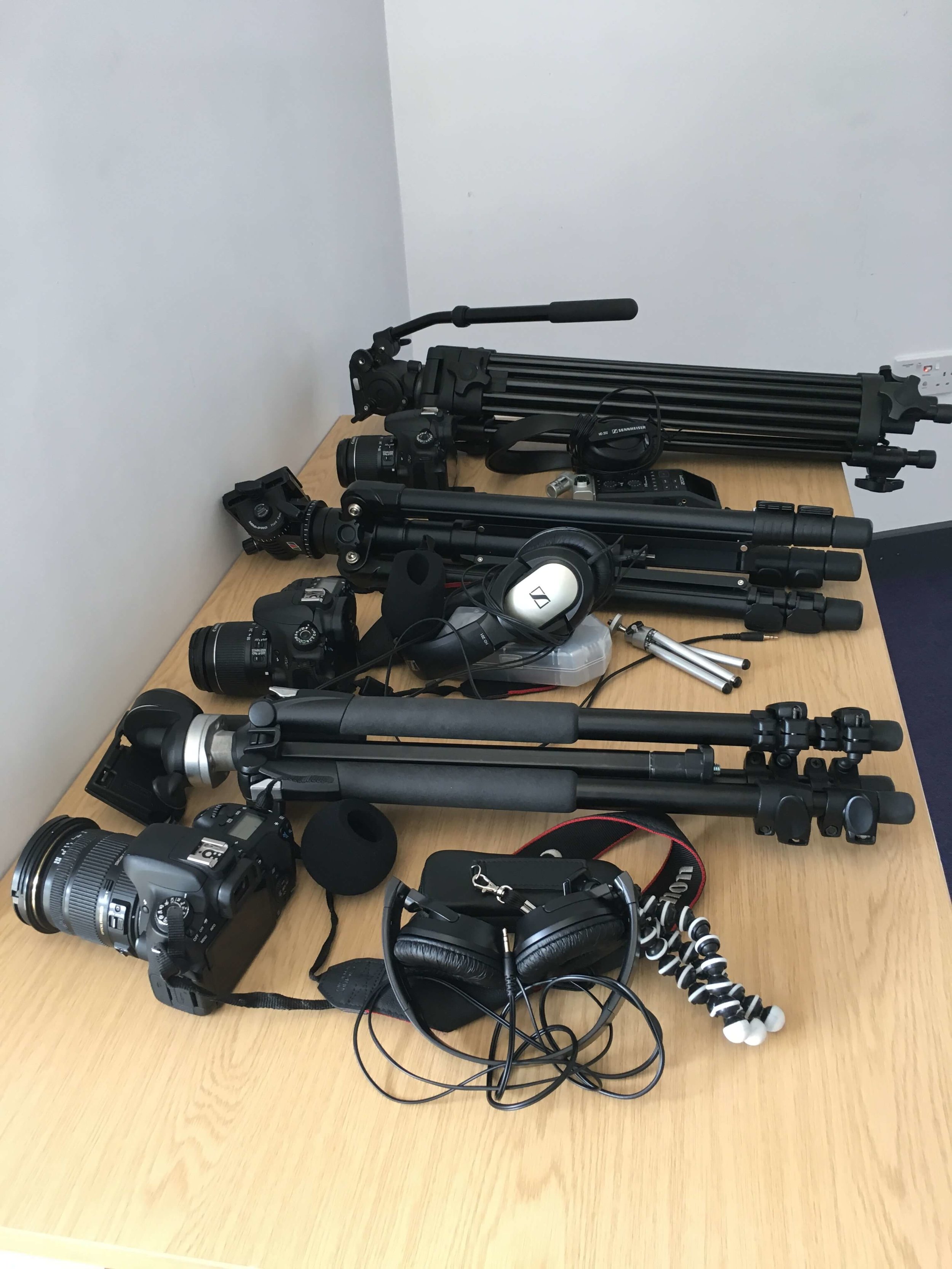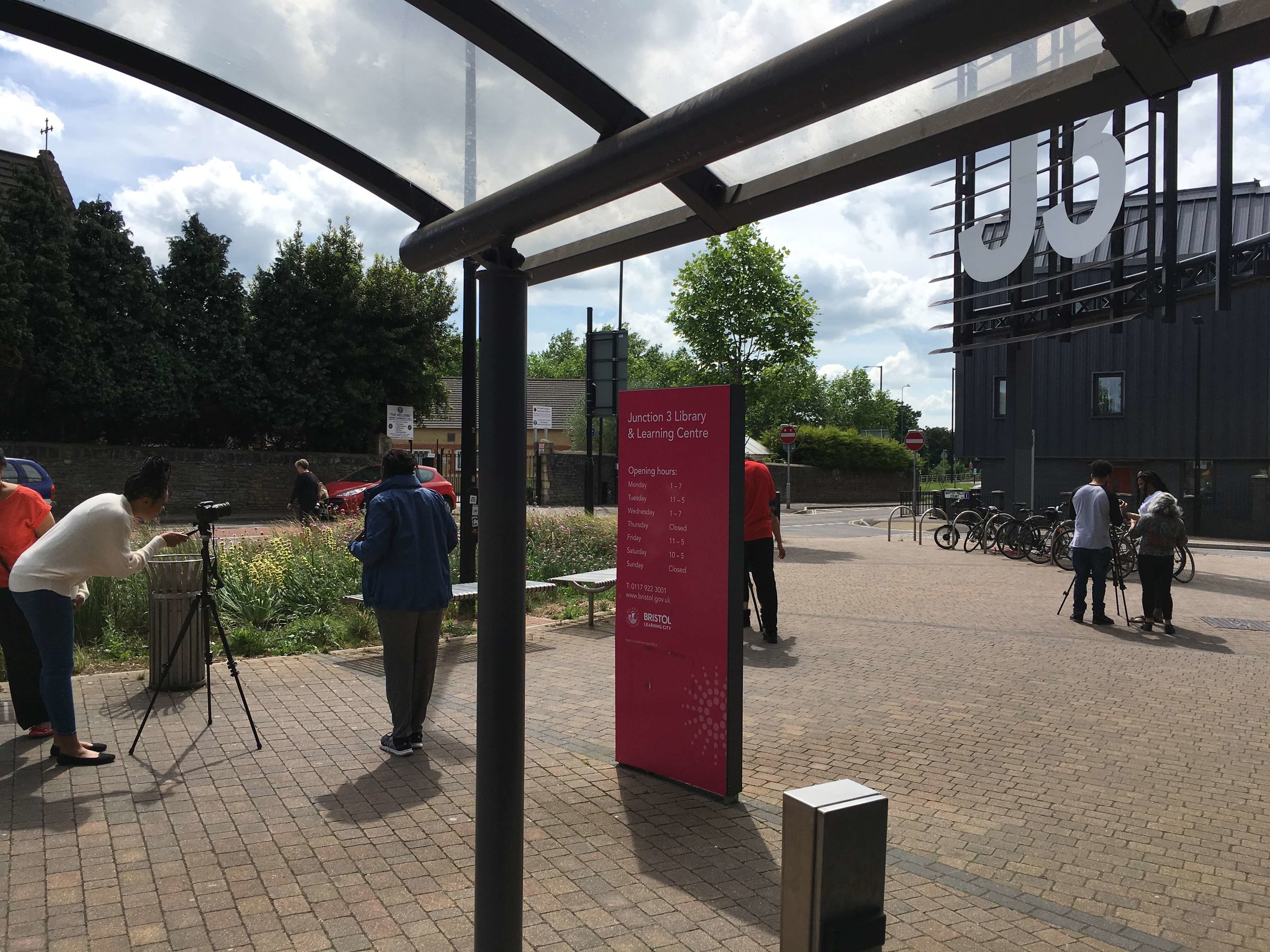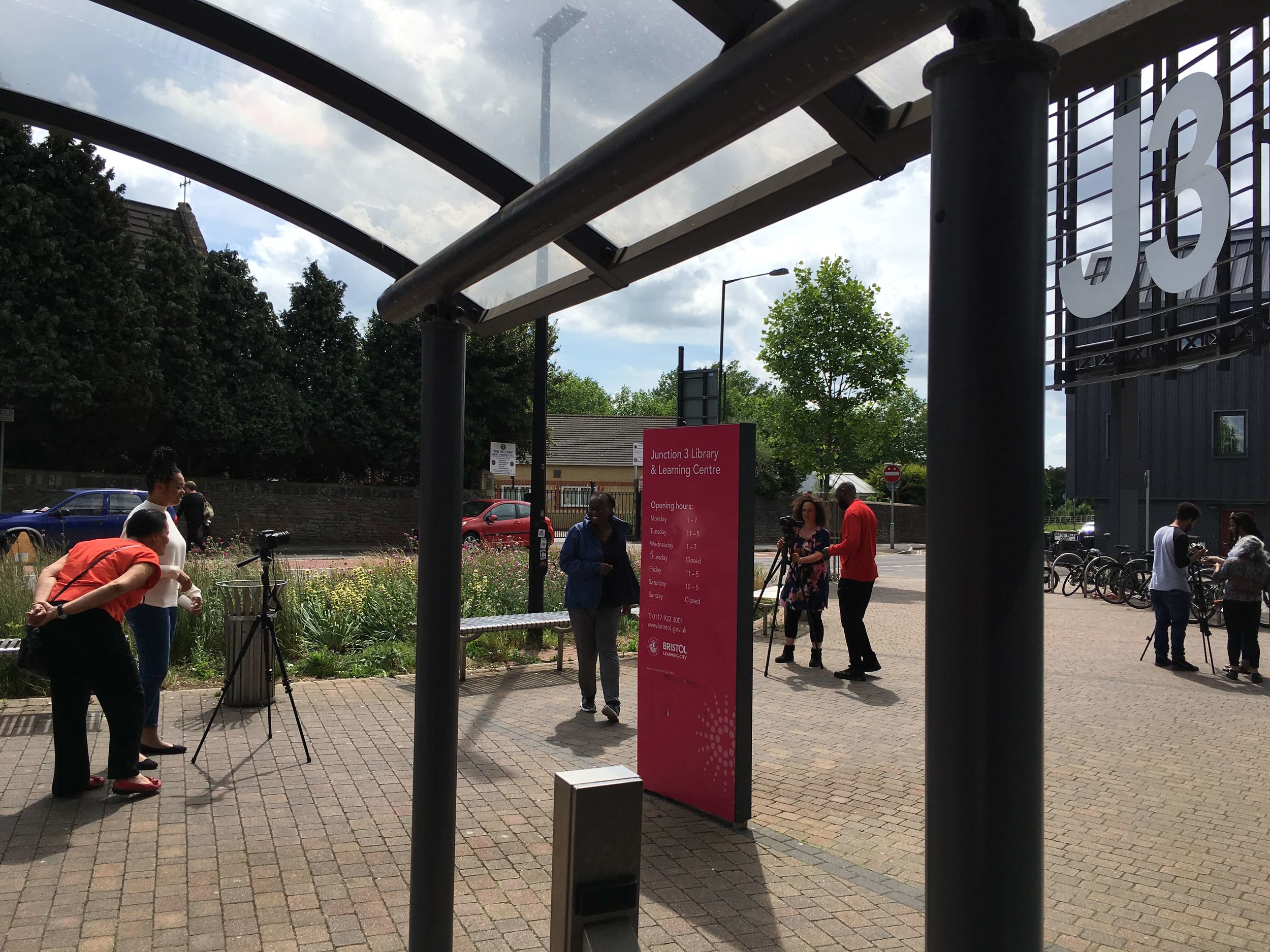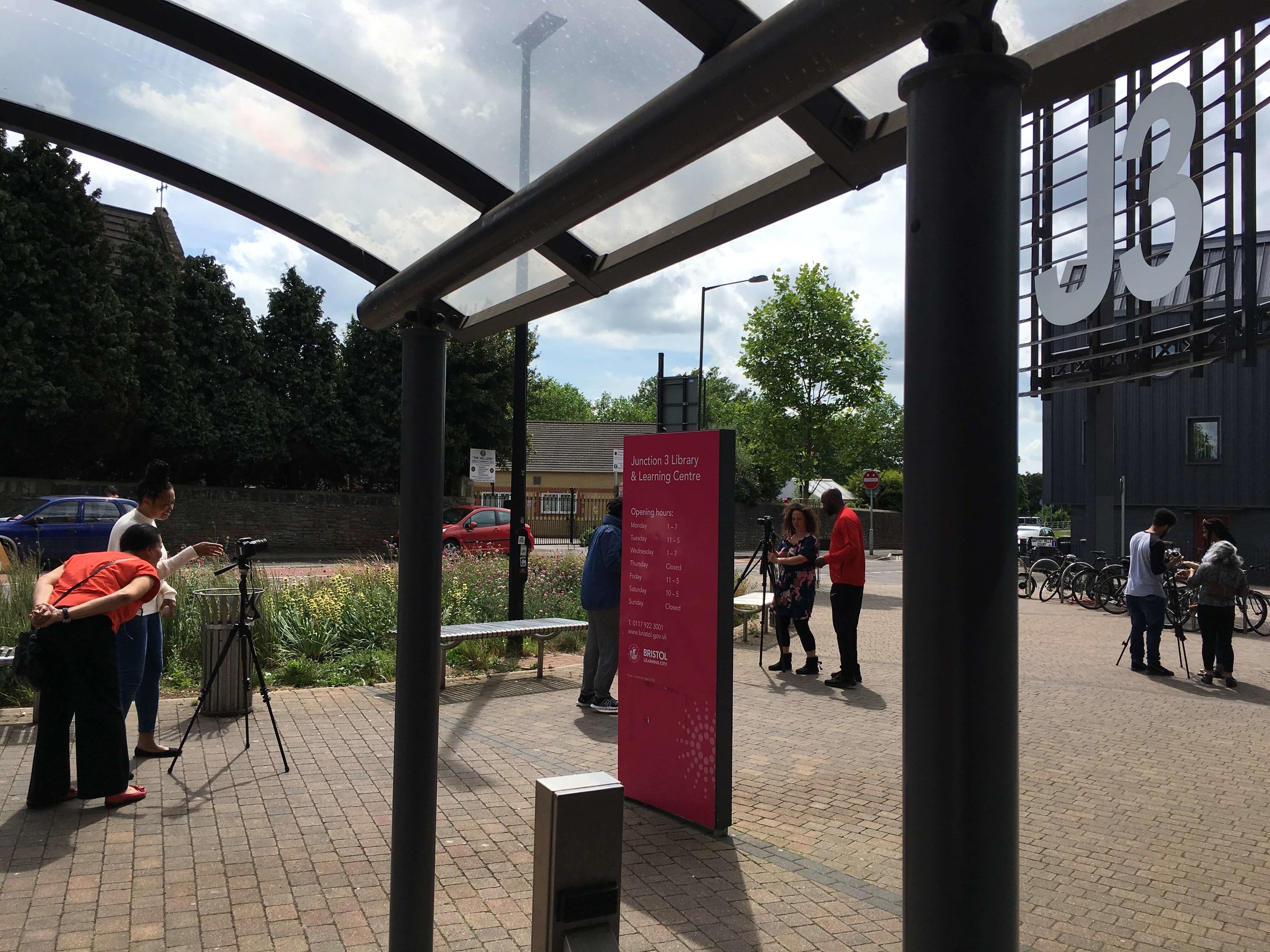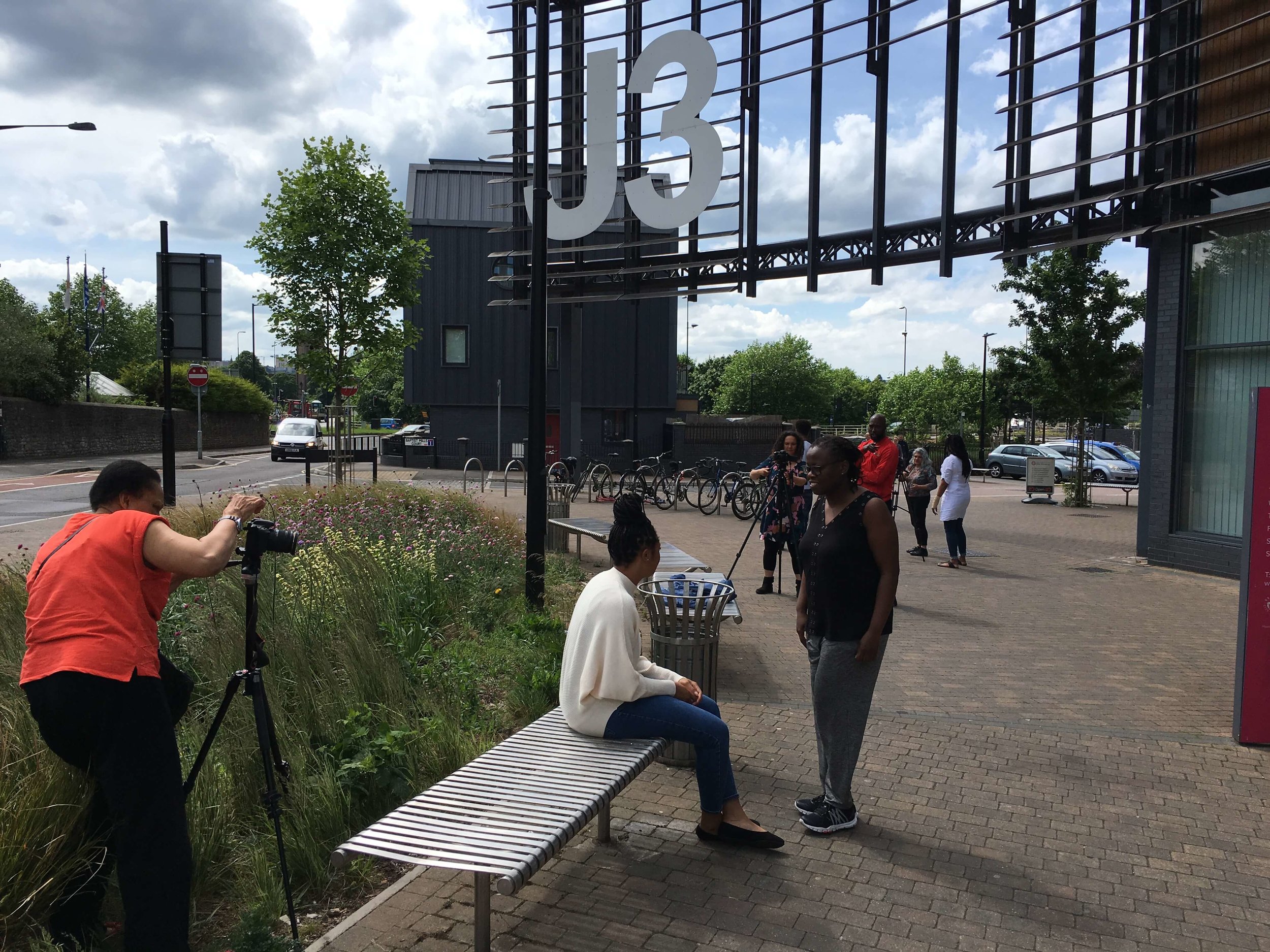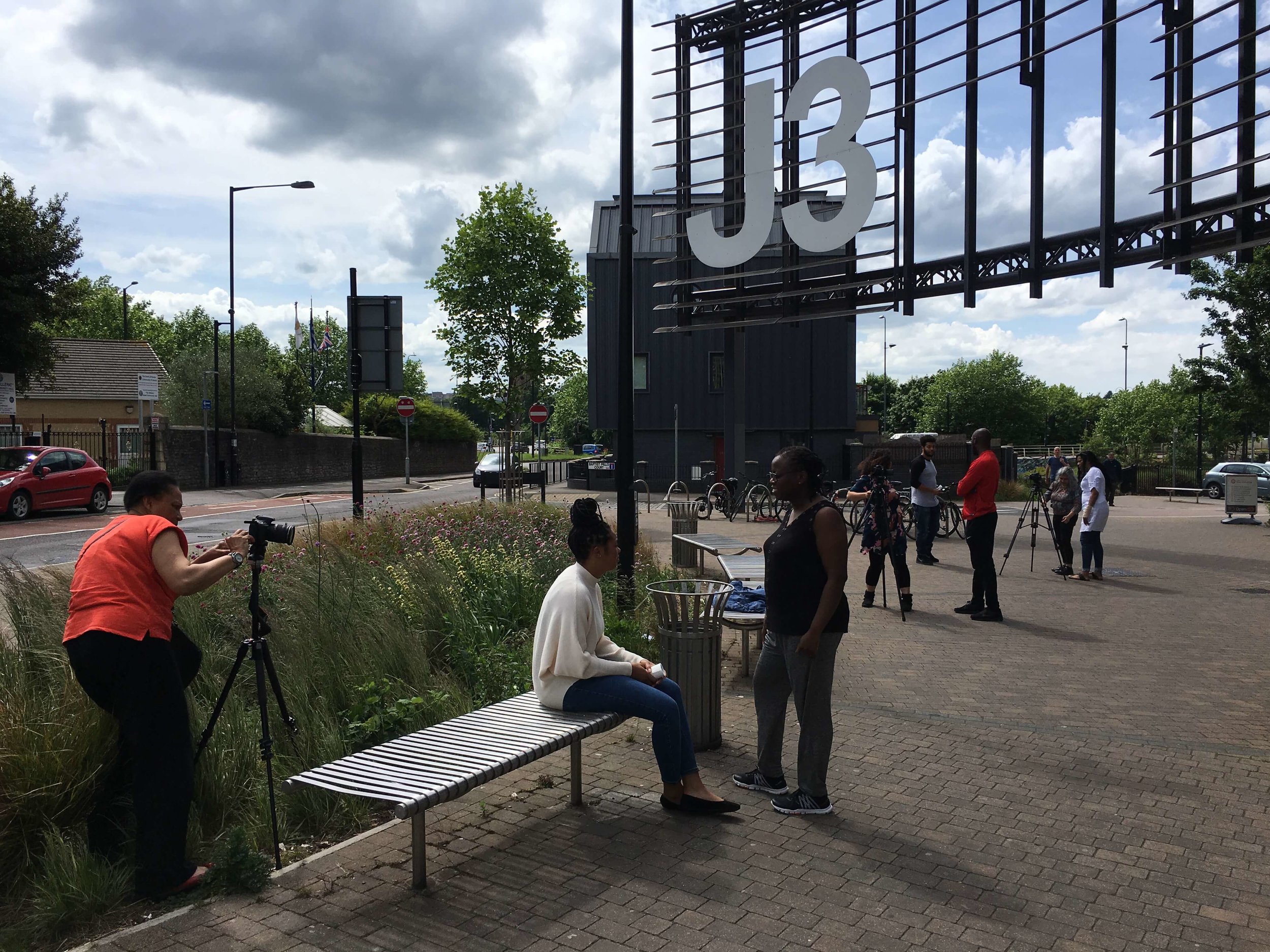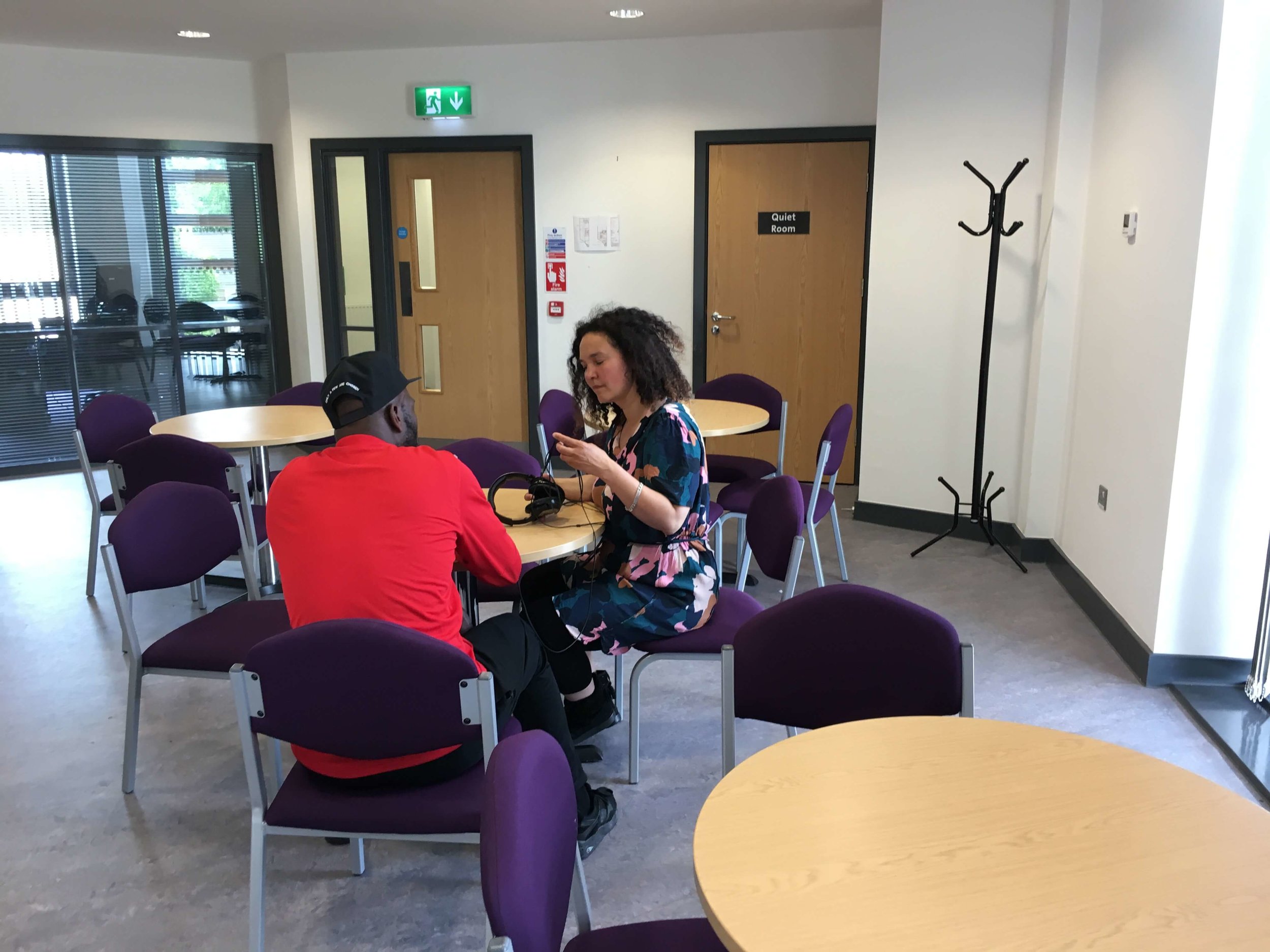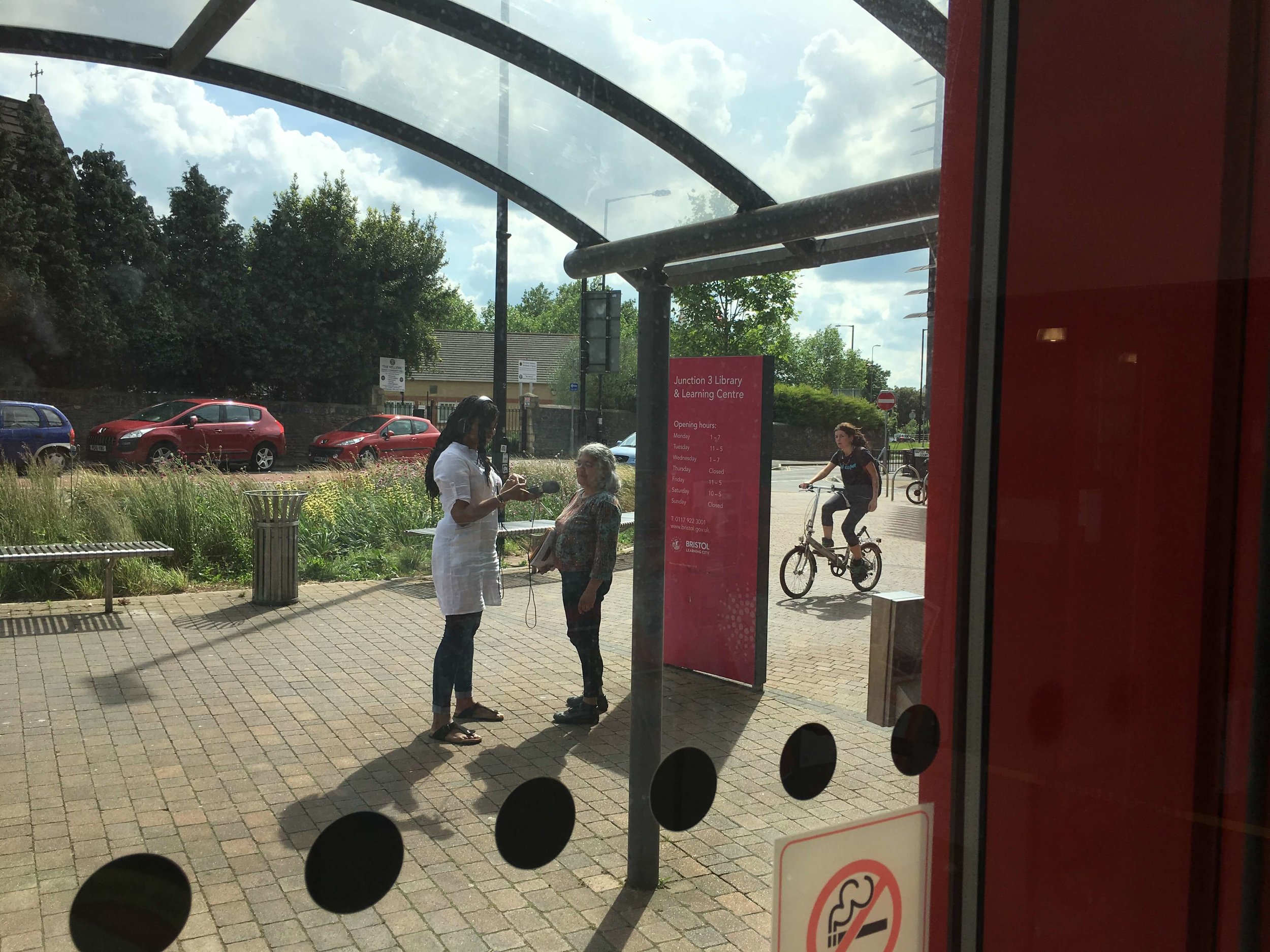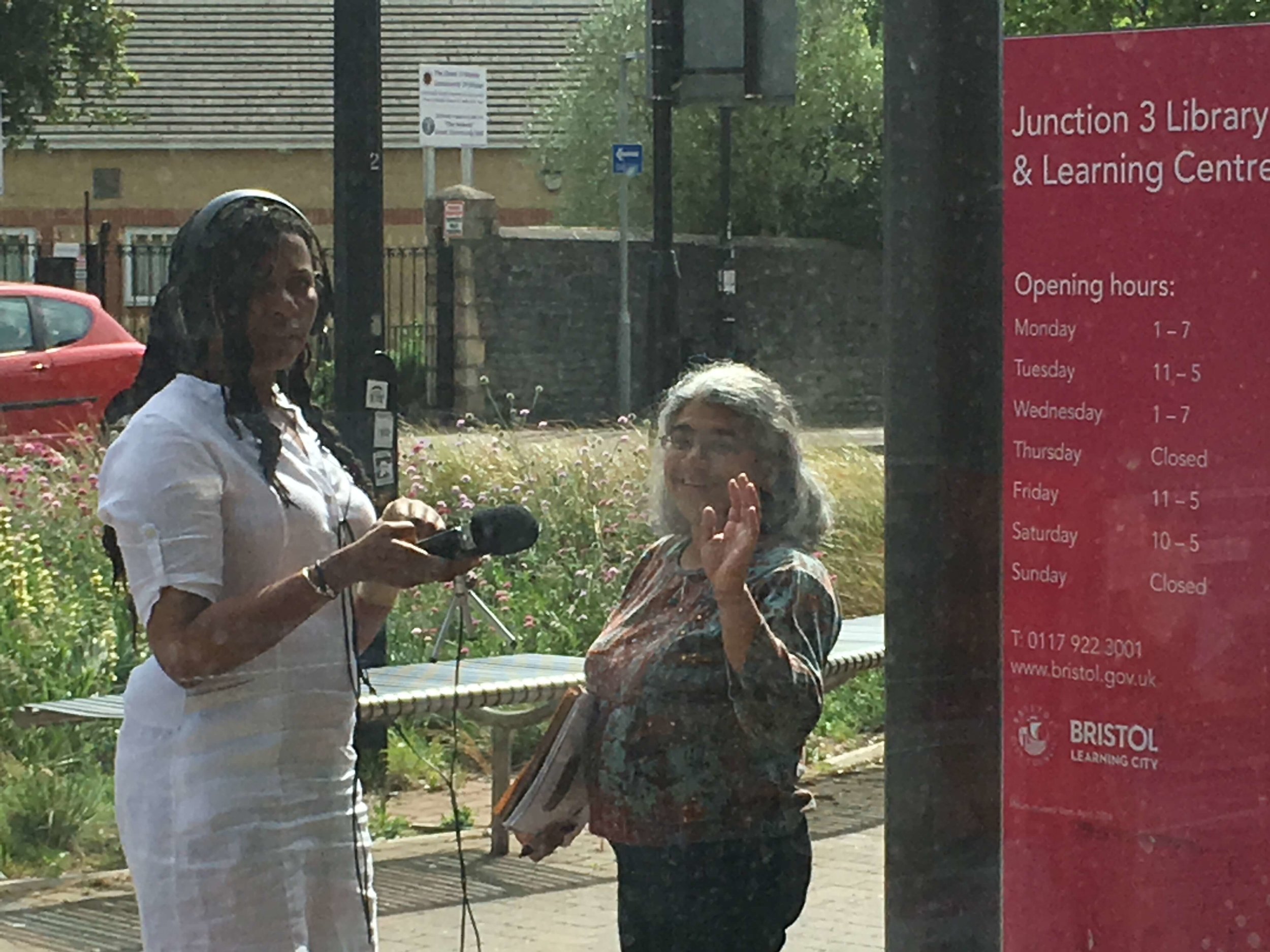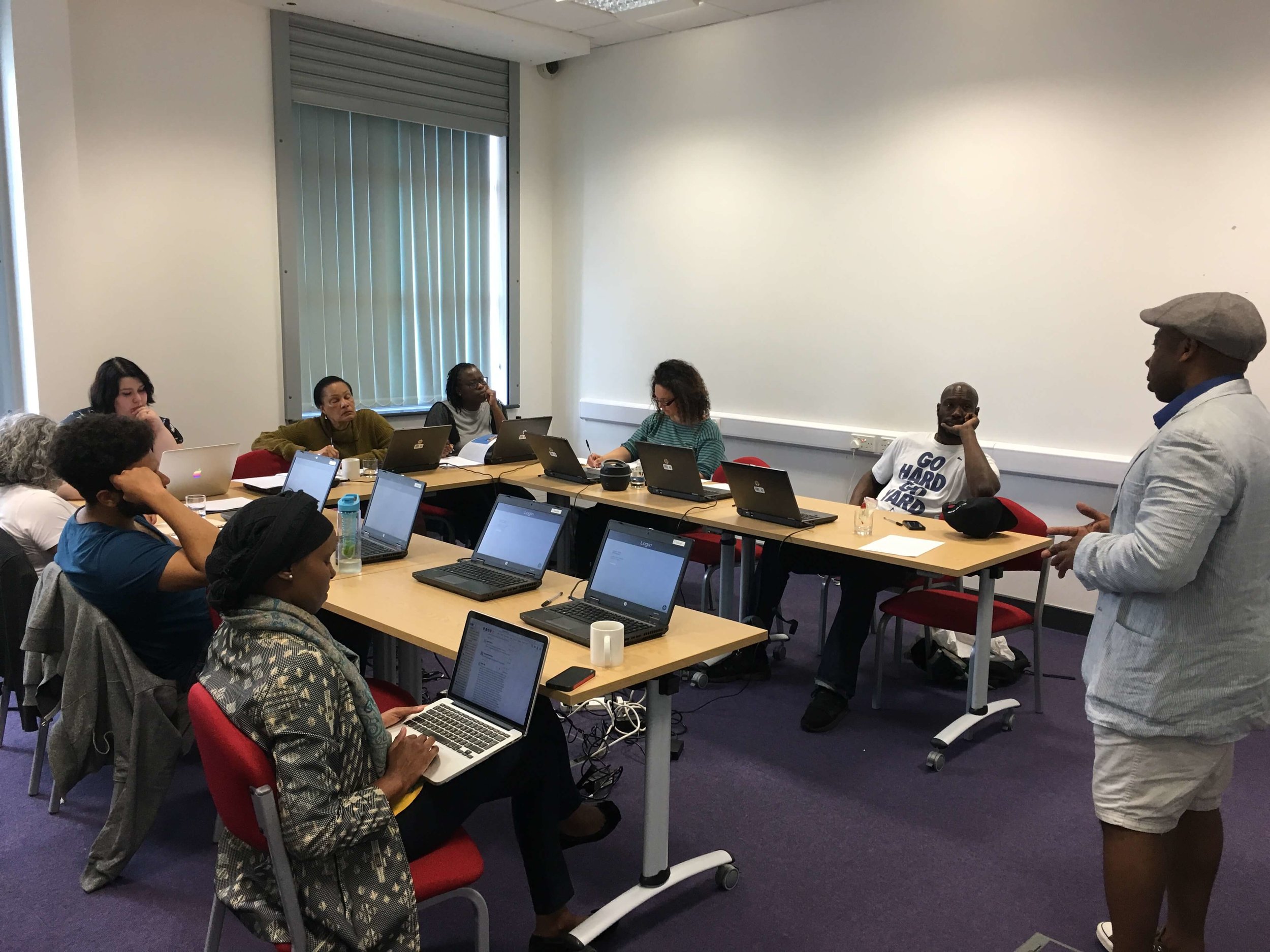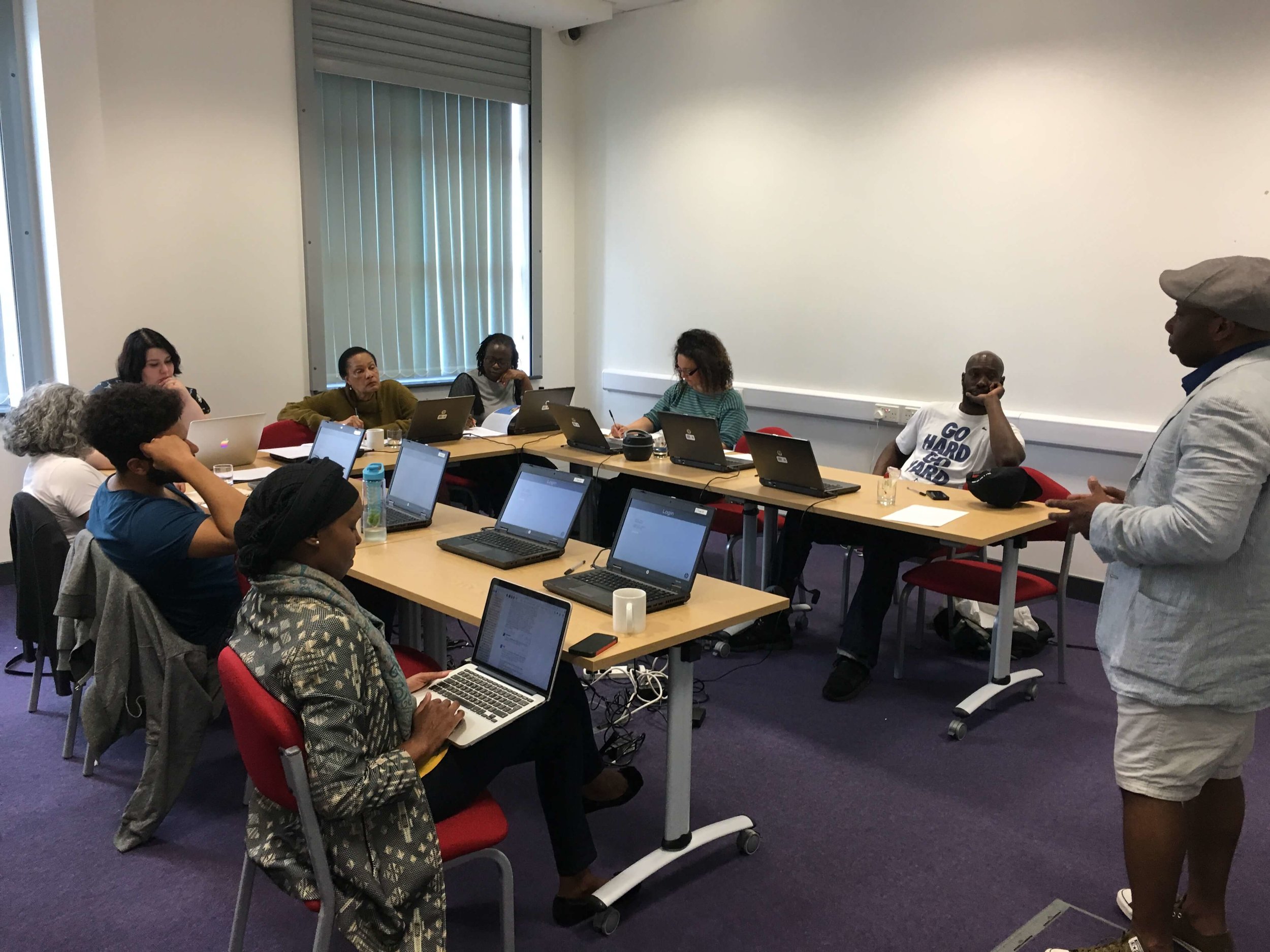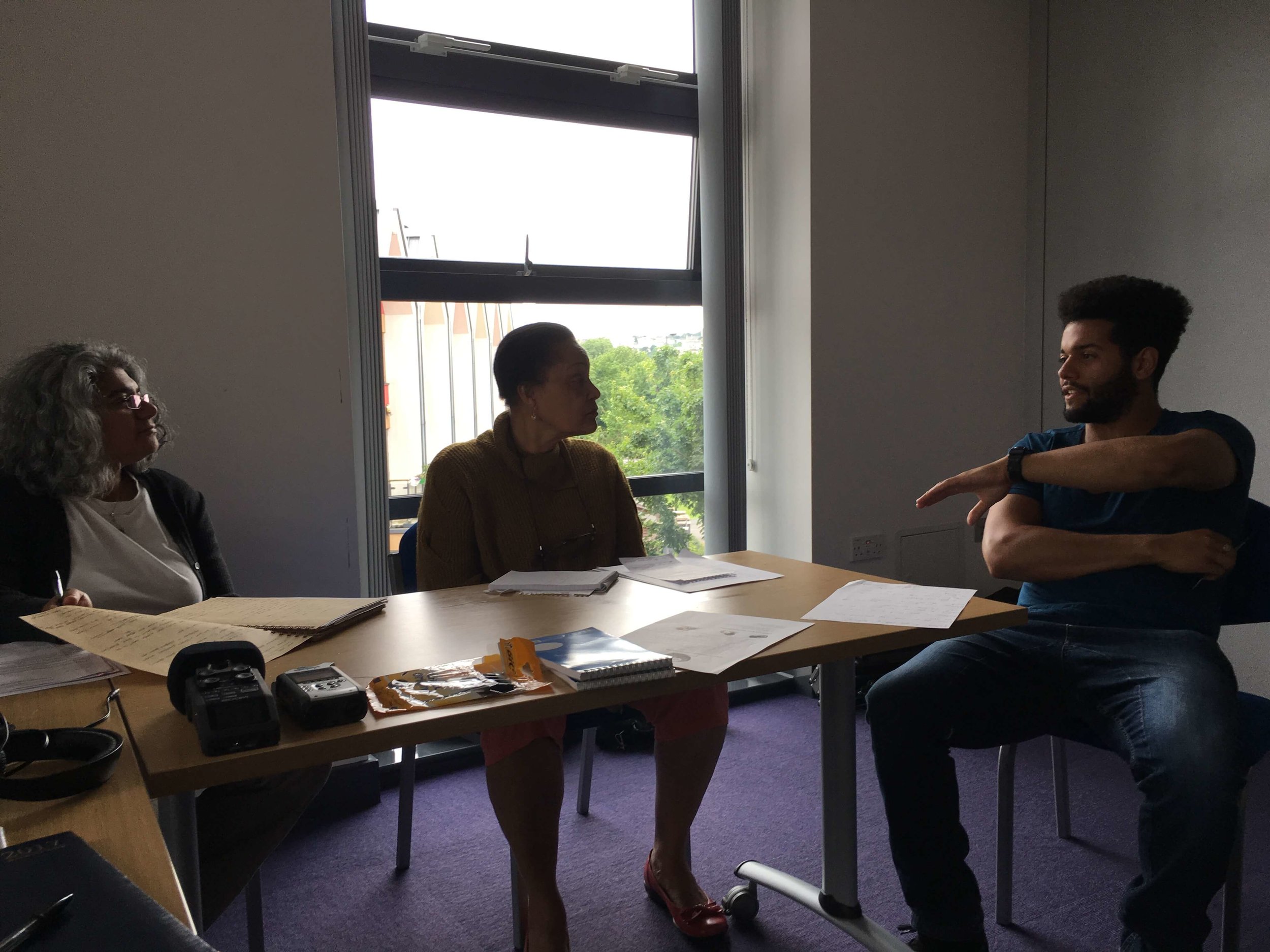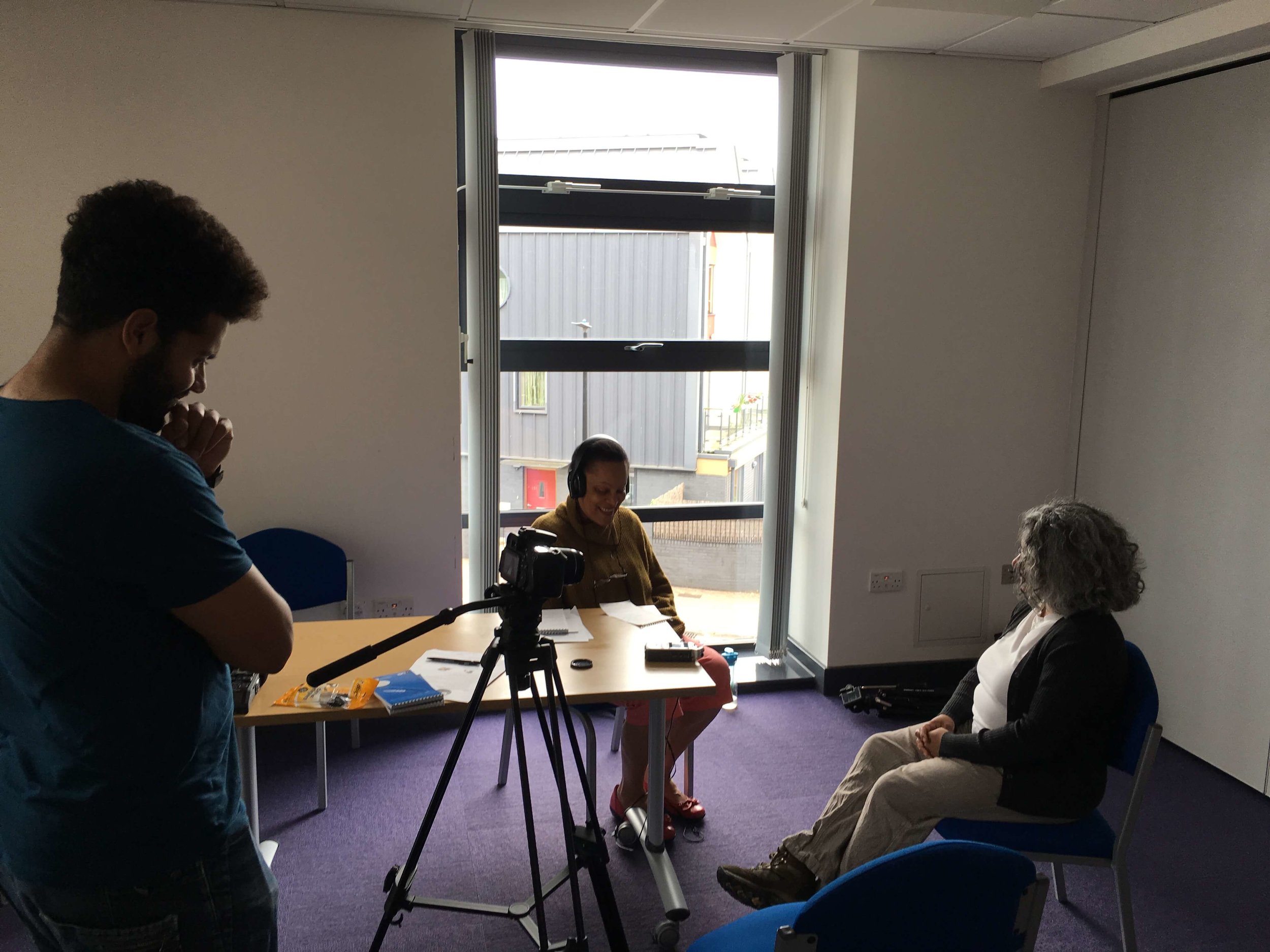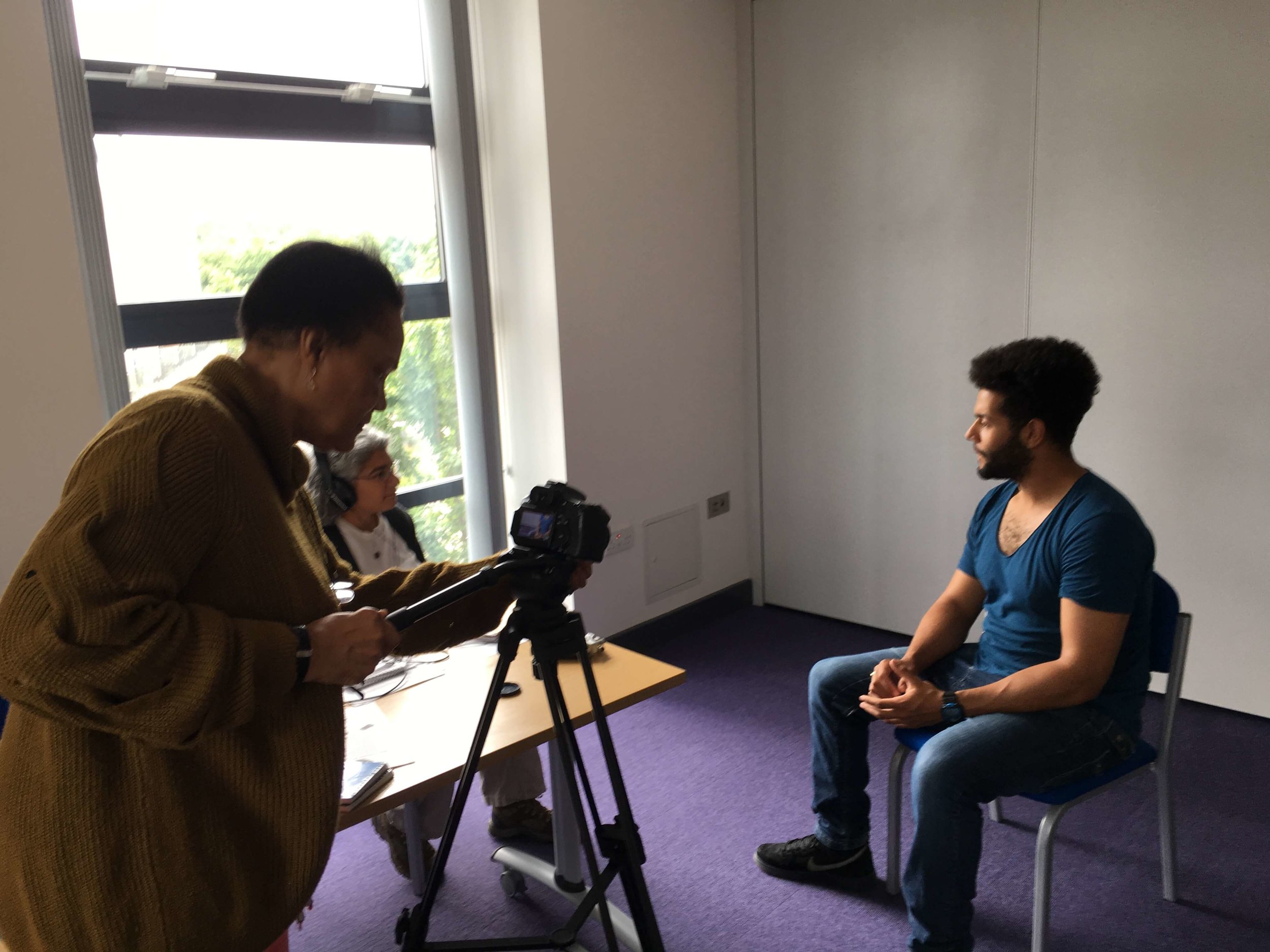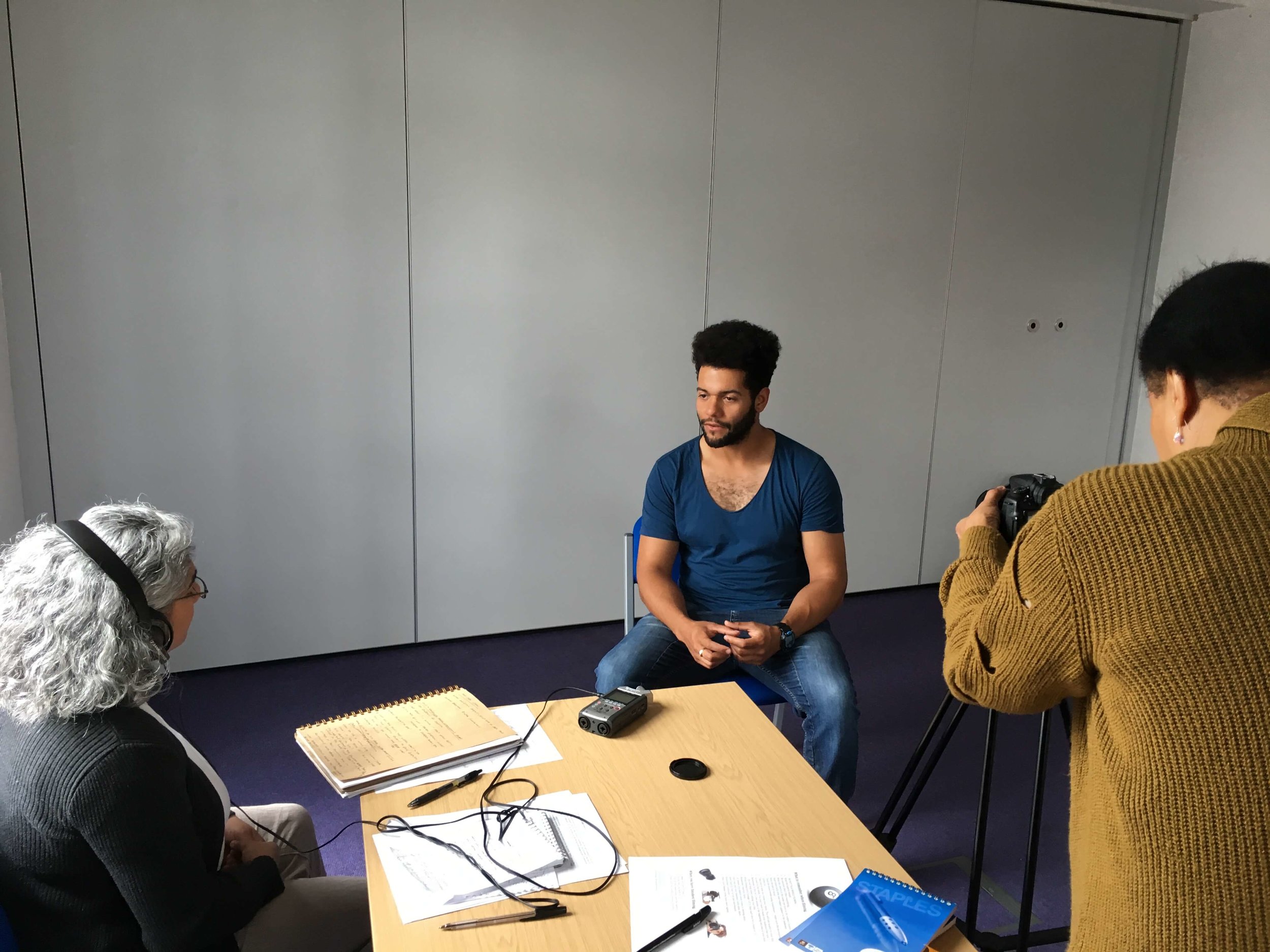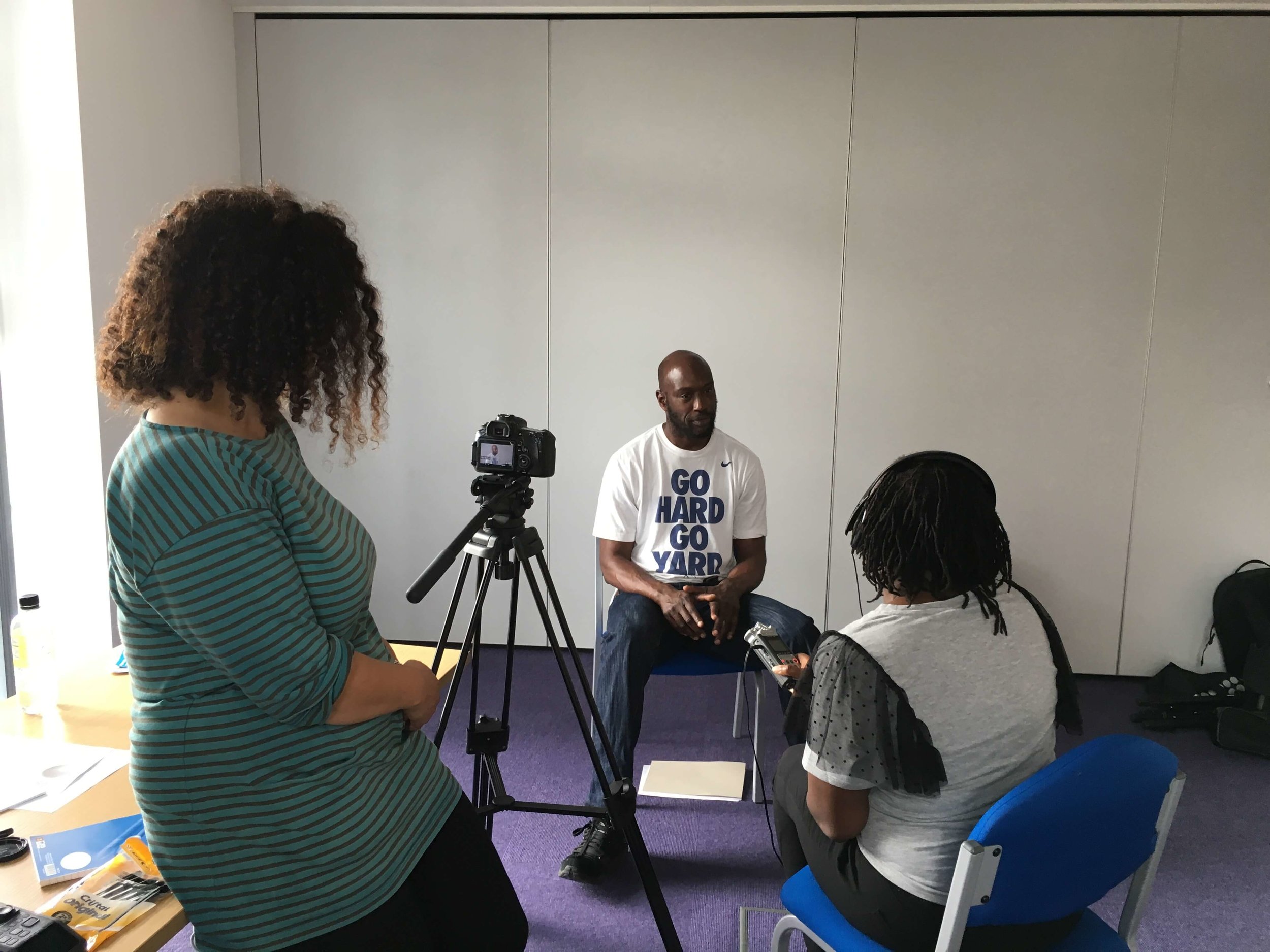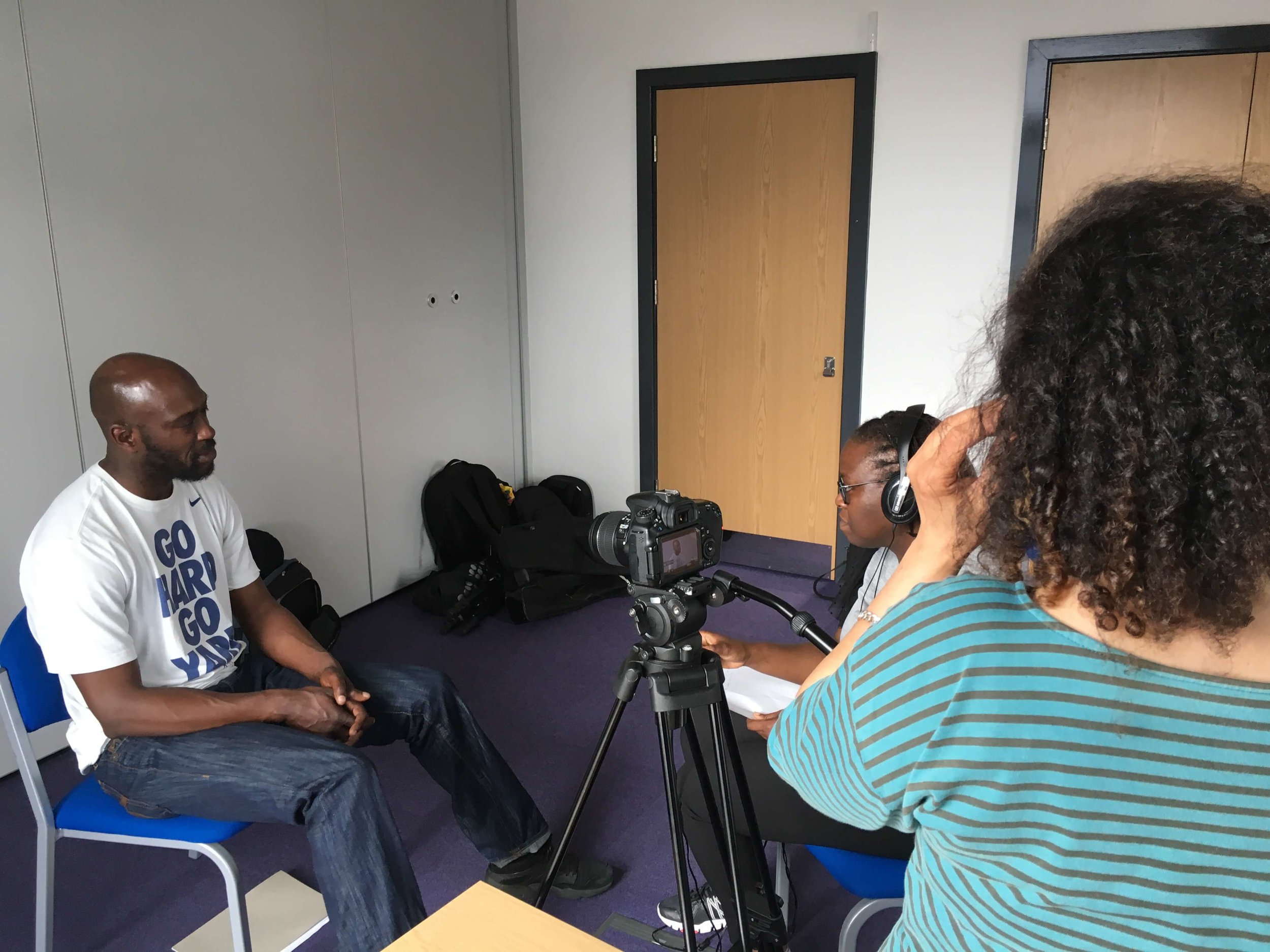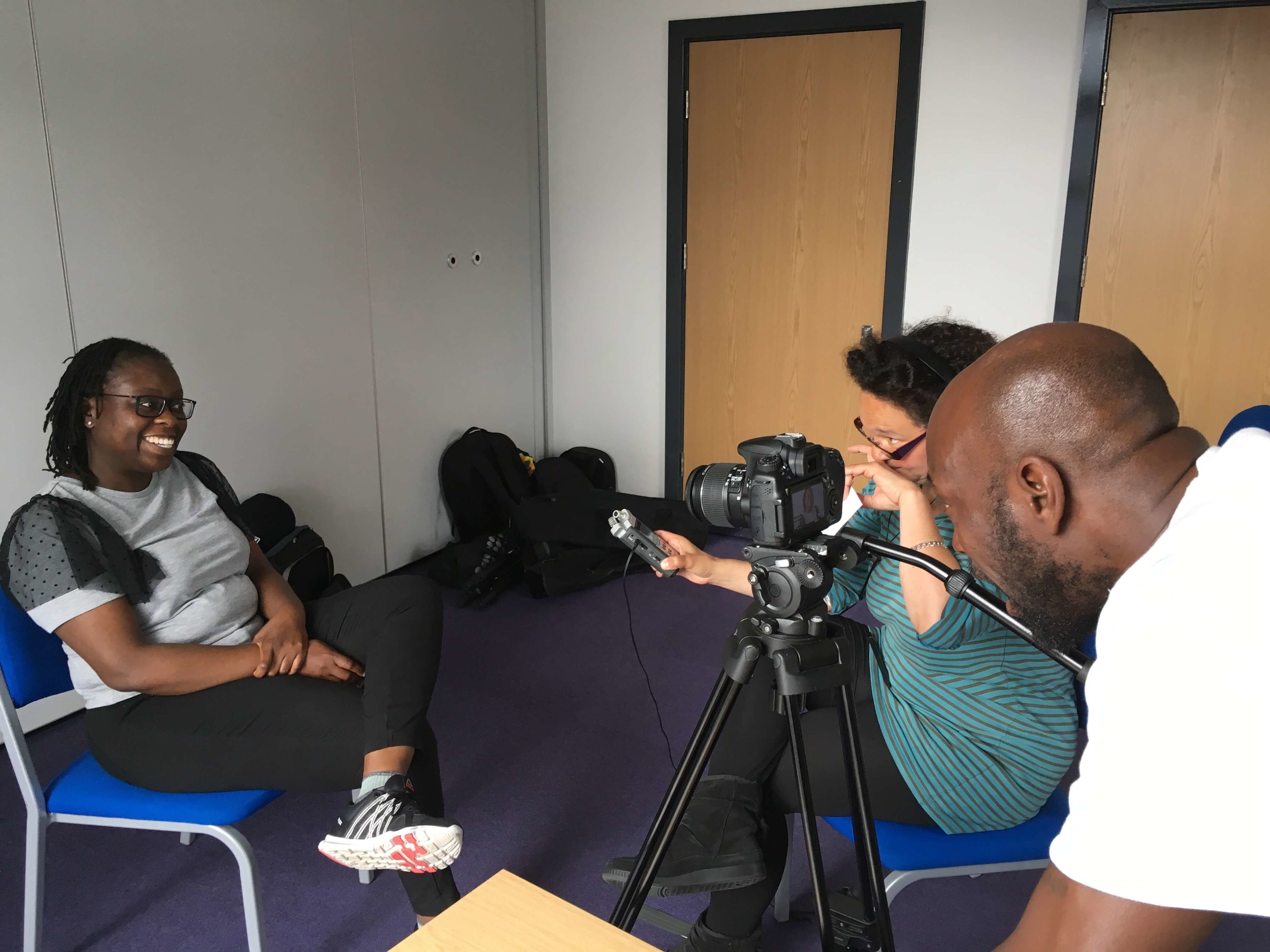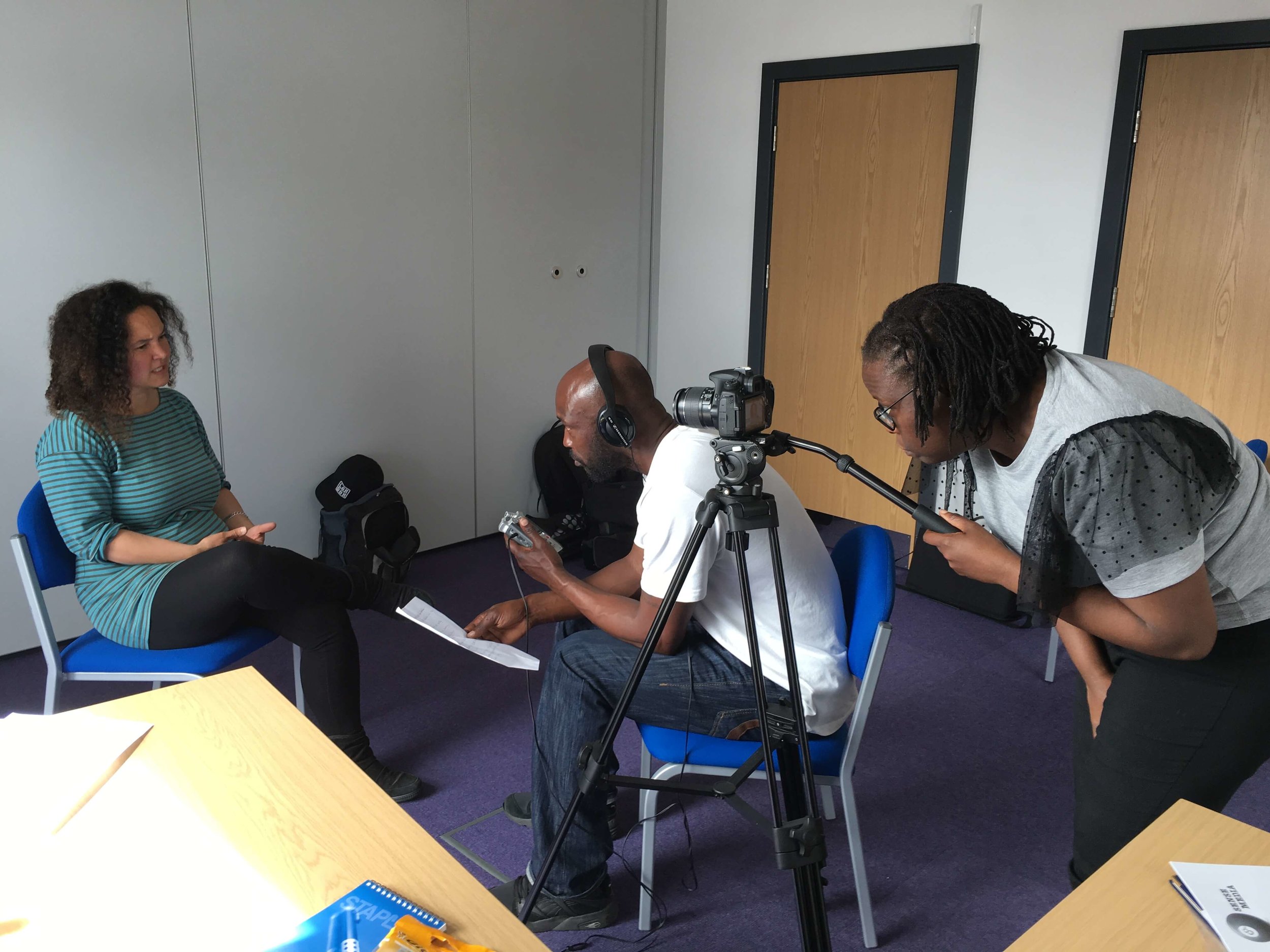Our ‘Free Media and Research workshop - race, identity & heritage’ was delivered as part of our ThereisBlackintheUnionJack Project, funded by the Heritage Lottery Fund. The aim of this workshop was to introduce a group of participants to the different way we look at race, identity, belonging and heritage, as well as how to research them. Another part of the workshop focused on providing the participants with video/audio skills, to get them used to using a camera and microphone, and to help prepare them for using these skills in the future.
The workshop took place over four days between the 30th May and 2nd June 2017, with a pack programme from our three facilitators:
Dr. Edson Burton, a writer, historian, programme-curator and performer based in Bristol. His academic specialisms include: Bristol and the Transatlantic Slave Trade, Black History in the USA, Cultural continuities between Africa & the New World. He has been a consultant and coordinator for a range of HLF and Arts Council history projects in Bristol.
Dr. Madge Dresser, a Visting Senior Research Fellow after many years as an Associate Professor in Social and Cultural British History. She co-edited a book for Historic England on Slavery and the British Country House and since then edited and co-authored Women and the City: Bristol 1373-2000 which came out in 2016 and contributed a chapter on slavery and country houses for The Treasure Houses of Britain edited by David Cannadine and Jeremey Musson due out in 2017 as well as entries for the Oxford Dictionary of National Biography.
and
Michael Jenkins, a young film director from Bristol. Michael is the founder of 8th Sense Media production company, their services range from imaginative and cost-effective productions as well as engaging training workshops for people of all ages. Michael made headlines when he was commissioned by Avon and Somerset Constabulary to create a short film that looks at the impact stop and search can have on communities. The film is now being used as a training tool for new recruits joining the police force.
Our facilitators worked with a group of six participants throughout the whole workshop, and four participants for one or two days of the workshop. The only requirement for our participants was to be over 18 years old, or older, creating a very varied participant group that provided excellent discussion and different viewpoints on the material.
On Day 1 of the workshop, Edson and Madge provided an overview of the major themes such as migration, race, belonging through looking at historical and film sources. This session prepared the participants for the following days of research and discussion. As part of the first day, Michael filmed a short clip of each participant to get an understanding of how they viewed their identity and belonging in Britain post-Brexit. These clips will be a part of the documentary Micheal is creating for the wider ThereisBlackintheUnionJack project, and will be screened as part of the Festival of Future City in partnership with Festival of Ideas in October. This day, as well as Day 3 and Day 4, were hosted by Junction 3 Library which was well equipped to cater to the workshop needs.
Day 2 consisted of a visit to the Bristol Archive, with a session led by Madge. Her session focused on showing the participants how to search the archive for information and what wealth of information could be gained by researching at a local city archive. As she herself observed, it was an experience for both our participants and the archivists; “…just letting people know there is a Bristol Archive was worthwhile and exposing archivists to the fact that there is a tremendous thirst for documents pertaining to ethnicity and race showed the process was a two way street”.
Day 3 of the workshop was led by Michael, with a focus on the video/audio skills. The group recapped on what they learnt from the previous session with Madge at the records office. The feedback from the group was that they were keen to learn the technical skills of gathering interviews and using DSLR cameras. Micheal introduced the group to the meaning behind various camera shot types and techniques, and explained to the group the various techniques and got the group to complete a short quiz to test their understanding. All participants were very engaged and each person have the opportunity to use the camera and the audio recording equipment. By the end of the session they all had a good understanding of using the equipment and tips on how to overcome barriers while recording.
On Day 4, the last day of the workshop, the participants were split into two groups. One group was practicing filming each other with Michael. In threes the participants constructed 10 questions and took it in turns to interview each other. They rotated the equipment they used, so one was filming while the other was recording audio and the last participant would be the one being interviewed. The second group was situated with Madge and Edson, with an opportunity to ask any remaining questions as part of the ongoing workshop discussion. The participants were also ask to write a blog or create a blog to document their experience and learning process from the workshop. The groups switched halfway through the session to give everyone equal opportunity to complete their blog/vlog and practice further with recording each other’s experience.
Feedback from all the participants was that they enjoyed the process and learning the technical skills, as well as using these skills in the future for their personal projects. The facilitators’ feedback was also very positive, and both Junction 3 Library and the Bristol Archive proved excellent venues for the delivery of our workshop.
We look forward to hearing from our participants on whether they’ve had a chance to put their new knowledge and skills into practice when we see them again for the screening of the documentary in October!


